TE RAU ORA Life
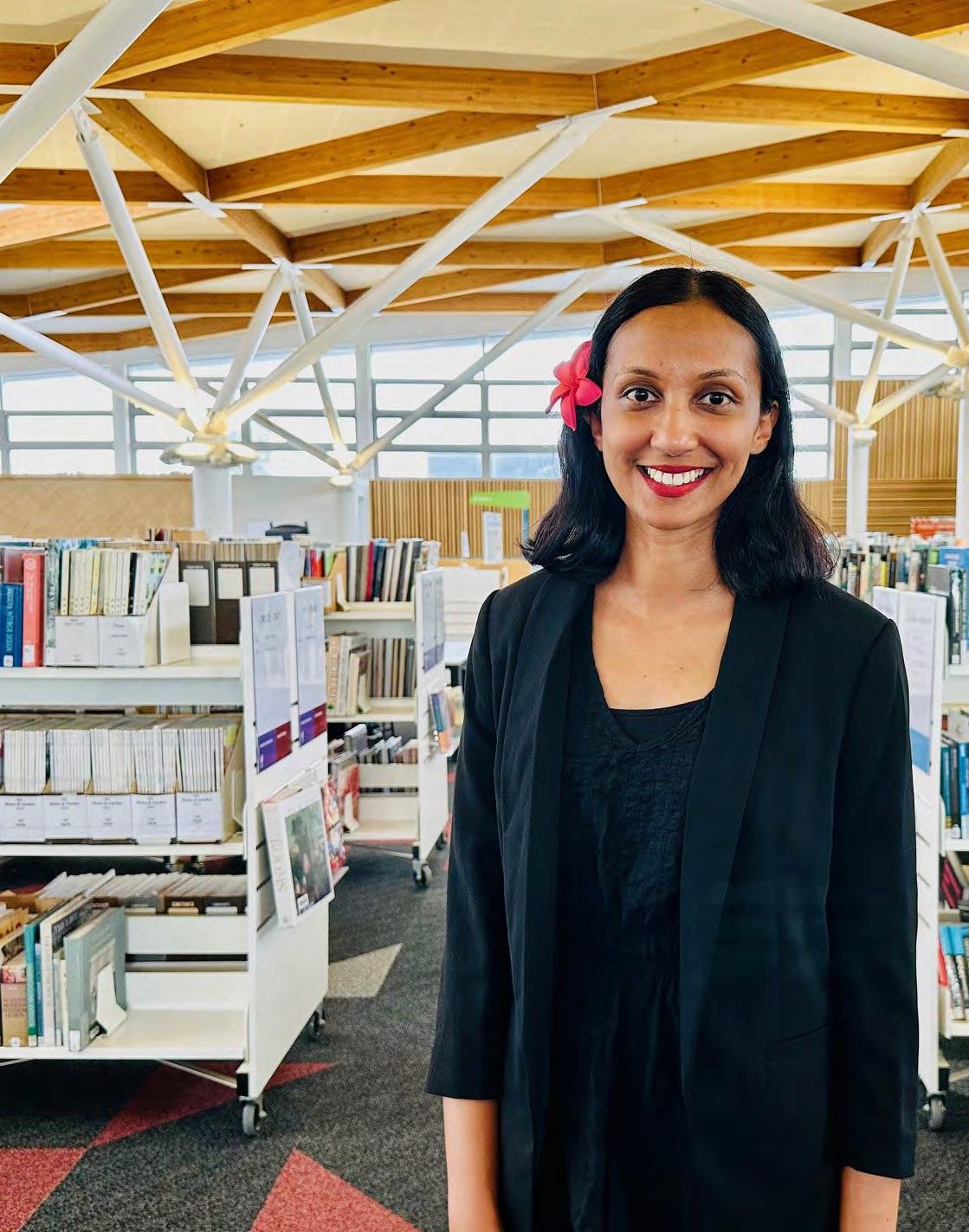
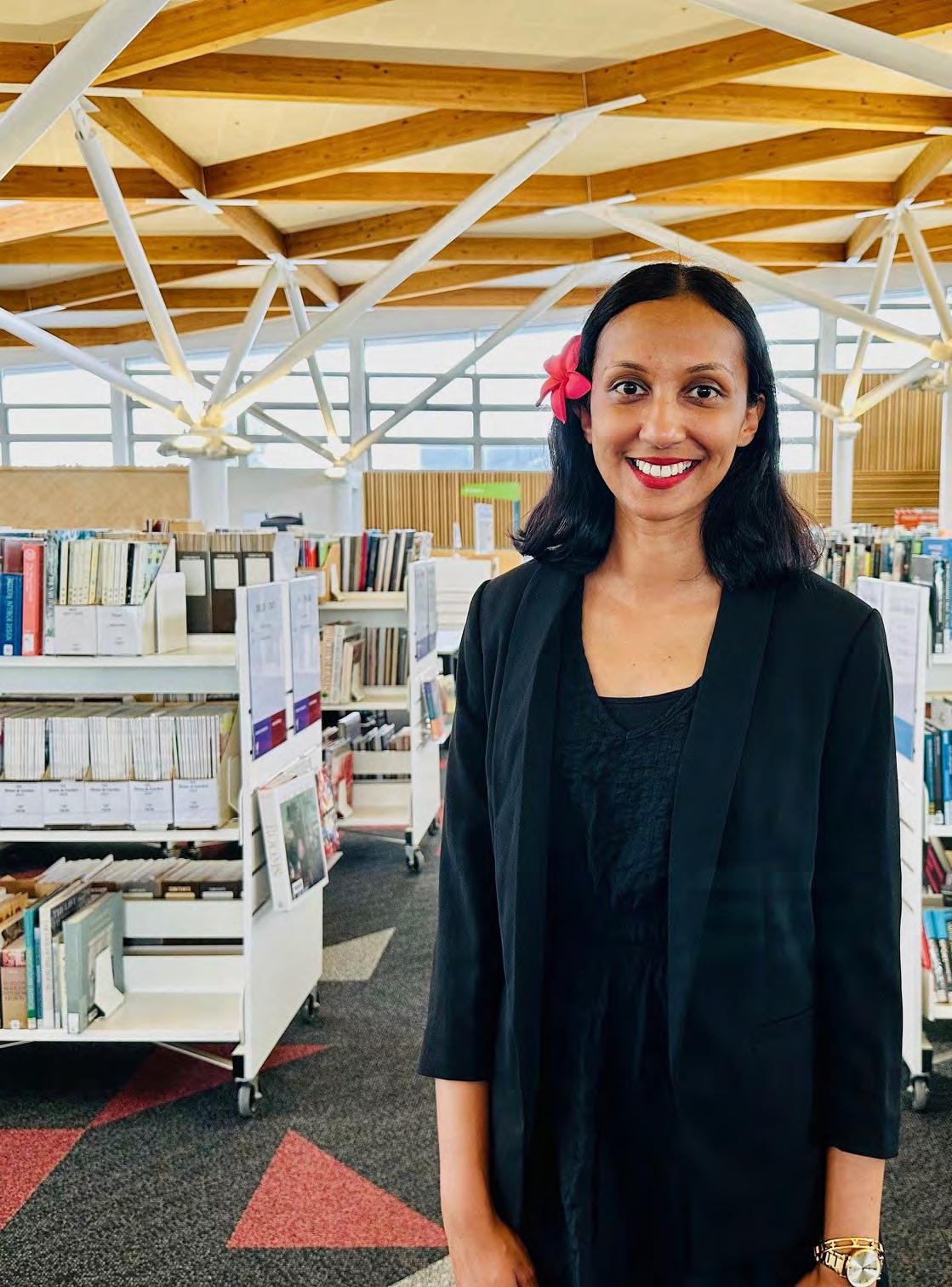
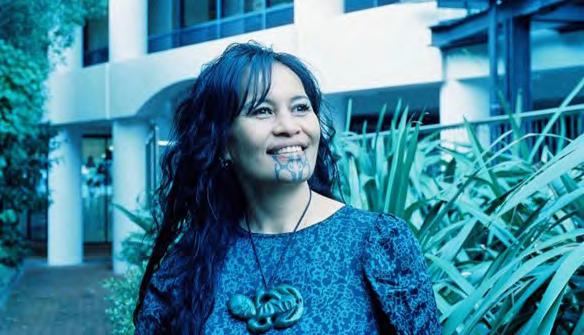

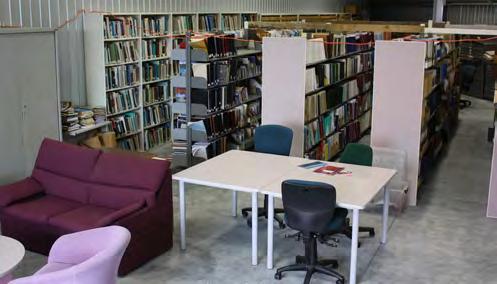
COVER IMAGE
Sana Saleem, Pacific Librarian
EDITOR & ADVERTISING
Angela Cairncross
LIANZA Communications Advisor angela@lianza.org.nz
LIANZA Media Kit available on request


FEATURES NGA TOHU
Te Paea Paringatai first IFLA president from Aotearoa
Mark Crookston begins his term as President with a vision for LIANZA
Graphic Novels – valuing their role in children’s reading
A school librarian’s view of graphic novels
Pay equity – an opinion piece
PITOPITO KŌRERO
New Zealand Book Awards for Children and Young Adults 2025 Finalists
Dementia Friendly Waimakiriri
L ibrarians and Wikipedia
We are LIANZA
NetSafe
33 REGULAR COLUMNS
L ibrary Mahi: Linda Stopforth
L ibrary of the Issue: GNS Science
Open Polytechnic: Pacific librarian upskills
History Corner: New Zealand Book Awards for Children and Young Adults
Freedom of Information: Library Challenges Register
Climate Action: Reflections on ALIA Online
LIANZA Office & Design Manager
https://www.lianza.org.nz/library-life
EDITORIAL STATEMENT
Te Rau Ora Library Life is the digital magazine of New Zealand’s Library and Information Association Te Rau Herenga o Aotearoa. Providing a voice for the views and news on issues relating to the GLAMIR sector. You may use material found in this publication in accordance with the Creative Commons Attribution 4.0 CC BY licence for any purpose if the original creator is acknowledged.
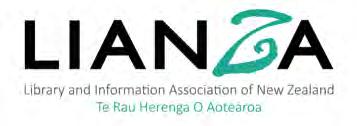
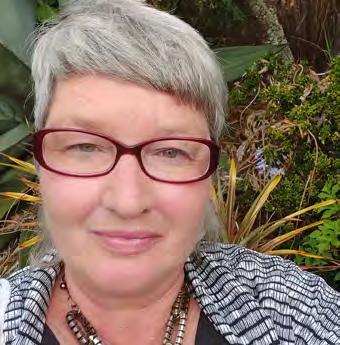
FROM THE EDITOR NĀ TE KAITĀTARI
ANGELA CAIRNCROSS
Another full issue. With two opinion pieces in this edition, we hear from school librarian Lauren Urquhart on graphic novels in school libraries. This article is backed by a research piece from National Library’s Tracey Greenwood. The second opinion piece comes from Mandy Henk and is a reprint of her Pay Equity article on Newsroom Media.
It’s exciting that from 2026, the International Federation of Library Association’s (IFLA) will have its first president from Aotearoa, we hear more about this from Te Paea Paringatai. We also get to introduce the shortlisted books for the 2025 New Zealand Children and Young Adults Book Awards.

LIANZA’s incoming President, Mark Crookston introduces his vision for LIANZA’s next year and we hear from some of our members on why they got involved and why LIANZA membership is so important.
GNS Science Library is featured, and we hear from dementia-friendly Waimakiriri Libraries. Linda Stopforth updates us on her mahi supporting business development through Wellington City Libraries and we hear about the work Wikipedia are doing with Auckland War Memorial Museum.
Please take a look at the Freedom of Information column to learn more about the Library Challenge Register. Louise LaHatte’s Freedom of Information column will explain why this is important.
Ngā mihi nui
Angie Cairncross LIANZA Communications Advisor

FROM THE PRESIDENT
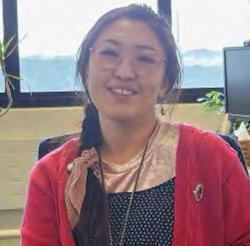
LIANZA PRESIDENT-ELECT
Kia ora koutou, 大家好
I’ve been thinking about what to write in my final column as LIANZA President – the wonderful people I met and worked with, the engaging meetings I attended, or the inspiring kōrero I witnessed. Last year felt like 白驹过隙 – a white steed flashing past a crevice. This is how the Chinese say, how time flies. Some moments crawled, yet now it’s all gone in a flash.
I have engaged with LIANZA closely over the last ten years since being one of the librarians who benefited from the LIANZA Kōtuku Emerging Leaders Programme 2016. If I’m allowed to be completely honest, I did not enter the Council role with a big ambition. I always bring a deep belief in the value of our sector. I also see significant

NĀ TE TUMUAKI
opportunities to connect with people and ideas, as well as the privilege of contributing at a strategic level to support the direction of LIANZA and the profession I care deeply about.
One of the most rewarding aspects has been seeing the progress of the Te Tōtara project – a clear example of what’s possible when collaboration and long-term vision come together. I am especially pleased to see the project creating meaningful opportunities for ongoing professional growth across the sector by offering diverse pathways for individuals to manage their own development journeys. That investment in people, at all levels and every stage of their careers, is the heart and soul of our profession.
One of the earlier defining moments for my library career was the Centennial Conference in Dunedin in 2010. I remember the three-day conference, the after-dinner dancing at Larnach Castle, and the moments when I thought – maybe this is what I want to do. I hope this year’s conference in Te Whanganui a Tara can be a defining moment for someone else as the 2010 one was to me. I could not be more excited for LIANZA2025 as the keynotes are announced, and I hope to see many of you in Wellington in September.
Welcome to our incoming President-elect, Laura Caygill, and newly elected Council members, Maia Bennett and Shiobhan Smith. With another year left on Council, I hand over the LIANZA Pounamu to the incoming President Mark Crookston on July 1 as I become the immediate Past-president. I look forward to this final year on the Council, working with Mark and Laura, as well as the existing and new members of the Council.
I thank everyone I worked with, connected with and befriended during the last year.
于道各努力,千里自同风。
Though each travels their own path, all are united by the same wind across a thousand miles.
Ngā mihi nui,
Ivy Guo Ivy Guo 郭小璐 President, Te Rau Herenga o Aotearoa LIANZA
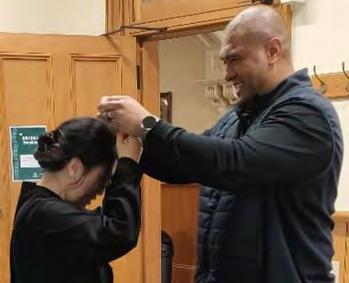
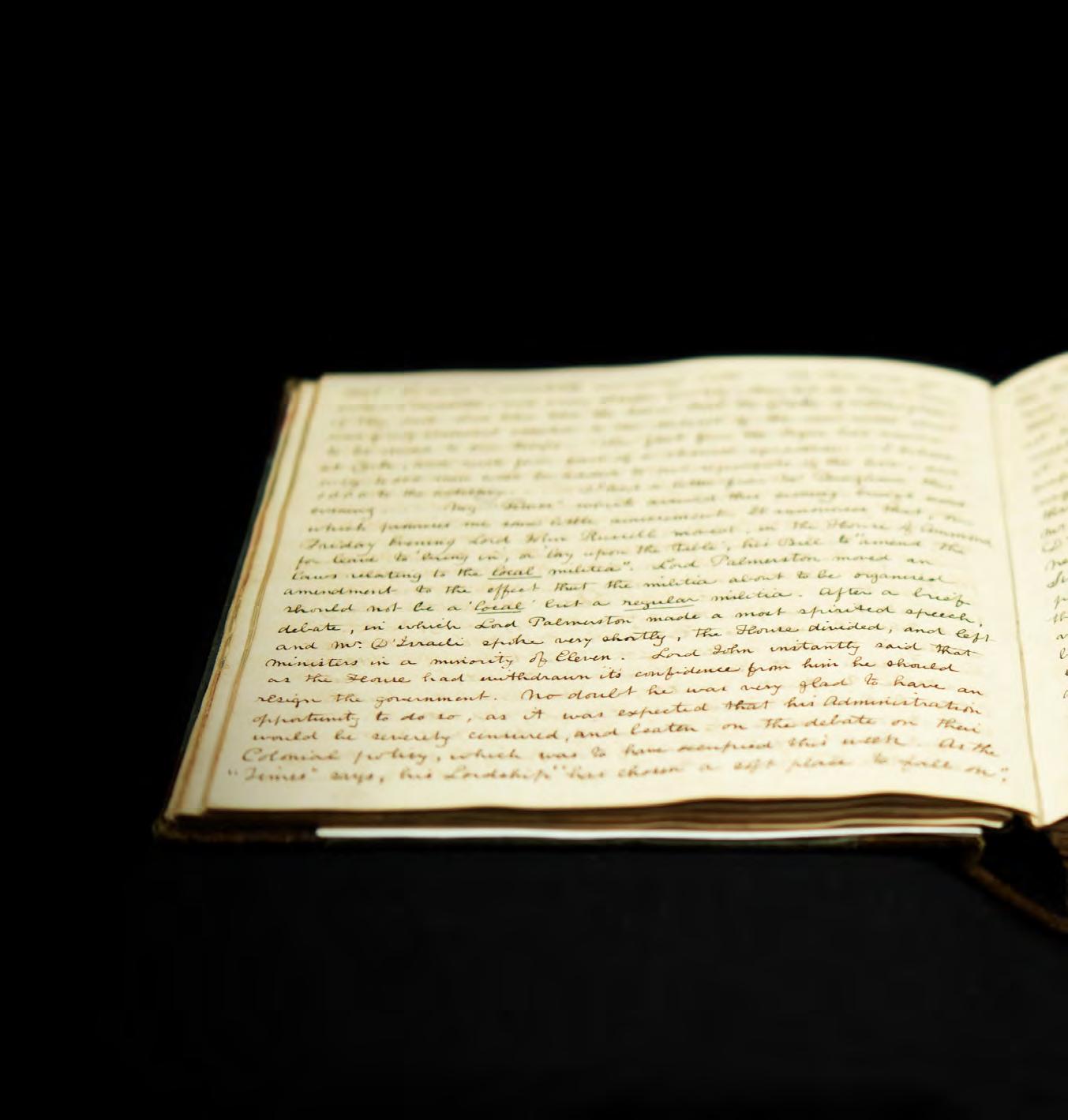

LIANZA 2025 KEYNOTE TE PAEA PARINGATAI TO BE FIRST IFLA
PRESIDENT FROM AOTEAROA

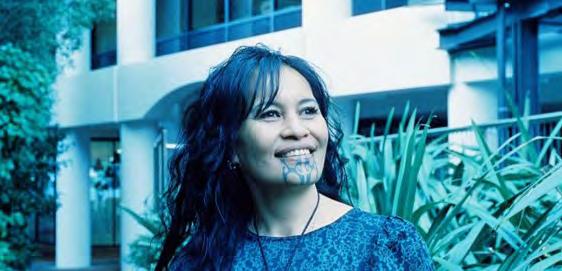
In May, the International Federation of Library Associations (IFLA) announced the results of its recent presidential elections. In a first for Aotearoa, Te Paea Paringatai (Waikato, Ngāti Porou), and in a landslide result, Te Paea was voted in as President-elect (August 2025-2027) and then as President (August 2027 – 2029).
“This is an amazing result. The first IFLA president from Aotearoa and a huge recognition for Te Paea and for the impact Māori librarians have had and continue to have on the profession internationally,” commented LIANZA President-elect, Mark Crookston.
Te Paea says that this role represents an incredible opportunity to champion libraries as spaces of innovation, inclusivity, and sustainability while embracing the richness of our global diversity. With a commitment to strengthening IFLA’s leadership, she says she is inspired to:
• Foster collaboration across cultures, generations, and borders to drive shared progress.
• Champion inclusivity, ensuring diverse voices are represented in the decisions that shape our future.
• Promote sustainability in libraries, aligning our work with global goals for collective impact.
With a career spanning academic libraries, national institutions, and global leadership roles, Te Paea brings deep experience and a strong commitment to embedding mātauranga Māori and Indigenous knowledge systems in the heart of information practice.
Te Paea currently serves as Chair of the IFLA Professional Council and sits on the IFLA Governing Board, helping shape international
conversations about the future of libraries, equitable access to knowledge, and the role of Indigenous worldviews in shaping sustainable solutions.
In Aotearoa, she supports the teaching of future library and information professionals and has led strategic initiatives with the National Library and Archives New Zealand to break down systemic barriers and foster genuine collaboration.
Te Paea is an ideal keynote speaker for the LIANZA2025 Conference in Wellington this September. Aligned with the conference theme of responding to change, her keynote “Whiringa ki Tawhiti: Libraries Leading a Future of Collective Stewardship” will explore how, in a world of accelerating transformation, libraries are not merely adapting but actively stewarding futures.
She will delve into the role of libraries as relational ecosystems, sustaining people, place, knowledge, and epistemic justice. Her address reflects on leadership as service grounded in relationships, integrity, and responsibility to future generations. Guided by the IFLA Brisbane Declaration and informed by the IFLA Trend Report 2024 and
Well known to the Aotearoa New Zealand library and information sector, Te Paea has held the presidency and Tumuaki positions for both LIANZA and Te Rōpū Whakahau and is a Fellow of both organisations. She was also a Commissioner on the Minister’s Library and Information Advisory Commission (LIAC).
Strategy 2024–2029, Te Paea’s keynote will offer insights that are globally informed and locally grounded.
Te Paea says, “Libraries are uniquely placed as connectors between past and future, communities and taonga, ethics and technology. As stewards, advocates, and leaders, they are being called to lead with care, courage, and collaboration. By being intentional about what we elevate and give mana to, we shift from sustaining to regenerating, ensuring our mahi is resilient, intergenerational, and anchored in collective wellbeing.”
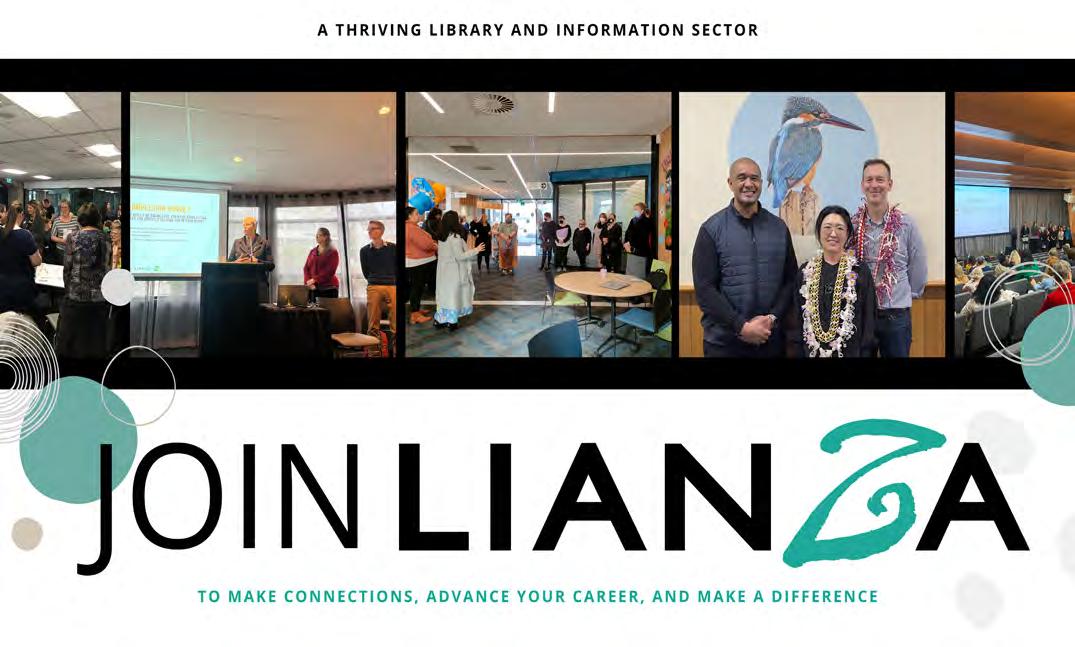

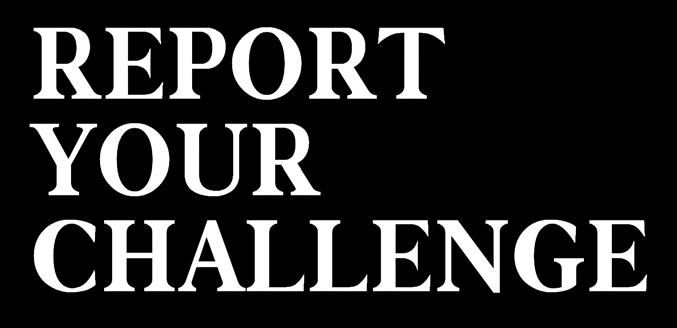



MARK CROOKSTON BEGINS HIS TERM AS LIANZA PRESIDENT WITH
A VISION FOR CONNECTION, GROWTH, AND PROFESSIONAL IMPACT


This July, Mark Crookston steps into his new role as President of LIANZA–and he’s bringing with him more than two decades of experience, a deep passion for equity and access, and a clear strategy for elevating the library and information profession across Aotearoa New Zealand.
A strategic leader with over 20 years’ experience in libraries and archives, Mark has spent the last seven years at the National Library Te Puna Mātauranga o Aotearoa, helping shape its future direction and running a range of services. Now, as
he leads LIANZA, he’s focused on strengthening relationships across the sector and positioning library and information professionals as essential voices in our democracy, education, and communities.
"A key strategic objective for LIANZA is to increase awareness of the crucial value of library and information professionals," says Mark. "This year, we aim to strengthen our role as industry leaders by fostering stronger sector collaboration and improving our offer to LIANZA members. We laid the groundwork in 2024, and for that I thank
Ivy (current president Ivy Guo) and the current LIANZA Council. In 2025, we’ll build on it through deeper partnerships and sector alignment. I’m very much looking forward to working with Laura (Laura Marshall LIANZA executive director) and the Council in the year ahead."
MEET THE 2025-2026 LIANZA COUNCIL
Joining Mark in steering LIANZA into its next chapter is a dedicated group of council leaders:
• L aura Caygill, President-elect, and Operations Manager at Selwyn District Council
• Ivy Guo, Immediate Past President
• Shiobhan Smith, Otago University Library
• Maia Bennett, Queenstown Lakes Libraries
• Rangi tihi Pene, newly appointed member
• Denise Wilson, Hana Whaanga, and Jo Cocker, who continue their terms, and Treasurer Lydia Tsen.
STRENGTHENING LIANZA FROM THE INSIDE OUT
Laura Marshall, who joined as Executive Director in late 2024, has been working closely with the sector to define LIANZA’s value and guide its next evolution.
“We’re evolving our professional development offerings to be more equitable, more accessible, and more impactful,” says Laura. “That includes refreshing professional registration and ensuring it reflects our members’ real needs.”
Part of this journey was the introduction of the Te Tōtara Capability Development Framework in 2024. The goal now? Embed Te Tōtara into a digitised Continuing Professional Development (CPD) journey, seamlessly integrated with LIANZA’s CRM and membership platforms.
Our work on LIANZA’s value proposition has made it clear that professional development is a top priority. That’s why LIANZA is planning to introduce a new Professional Development Advisor role. This person will:
“We expect our enhanced professional development approach – backed by a new CPD role and powered by Te Tōtara – to be a game changer,” says Laura. “It’s about helping our members grow, lead, and thrive in a changing world."
• guide memb ers through their CPD journey
• c oordinate a calendar of PD events
• support peer-led learning and community events.
WHAT’S AHEAD IN 2025
In addition to professional development, LIANZA has set several ambitious objectives for the year:
• This year, we’ll be increasing our focus on proactive advocacy.
• Secure long-term financial sustainability through a new commercial roadmap and sponsorship strategy.
• Ensure compliance with legal and organisational standards, including updates to the LIANZA Constitution, policies, and code of practice.
• L ooking at different and new ways to connect our members together and strengthen our local communities.
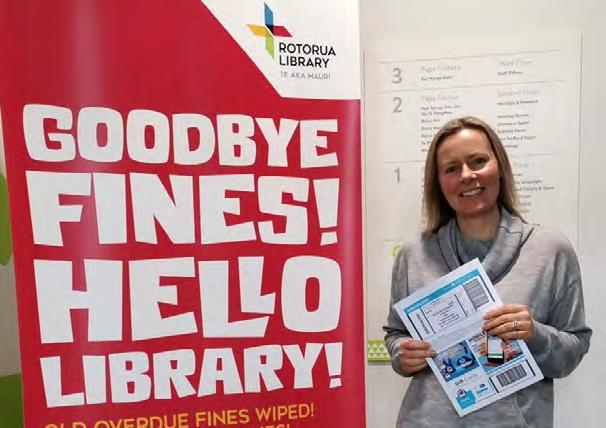

Wondering what’s the best way forward for your continued learning and development?
Take a look at Te Tōtara Capability Framework, developed by the sector - for the sector. Take your own journey, a team leader journey or a strategic journey.
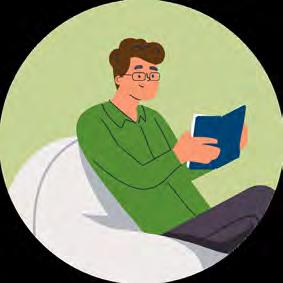
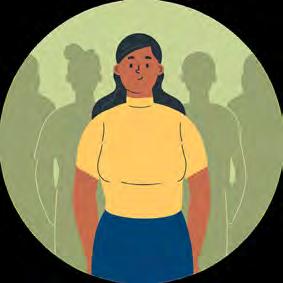
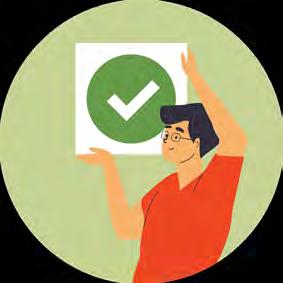
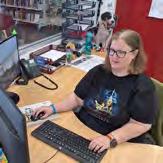
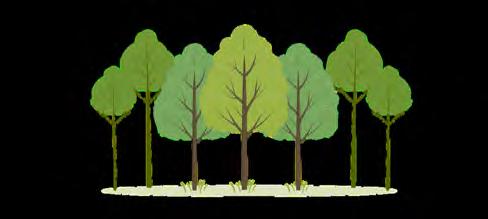



ONE SCHOOL LIBRARIAN’S VIEW ON GRAPHIC NOVELS
OPINION PIECE
Working as a school librarian, I meet reluctant readers daily. These students are not only reluctant to read but also seem overwhelmed and unable to pick up a book, read the back, and decide whether they’d like to read it. This is where I find that graphic novels work brilliantly at providing a bridge or a lifeline for some.
Recently, I had a challenging young customer who “HATES reading” and isn’t interested in any genre or story. I delved deeper and learned that she loves cheerleading…she left the library with a copy of The Tryout by Christina Soontornvat and a big smile. This is the beauty of graphic novels: they meet kids where they’re at. They’re packaged well – their attractive covers draw the eye, the size indicates that they’re not a huge commitment, and when a reluctant reader flicks through the pages, they’re met with vibrant illustrations which immediately draw them inside.
Around 16% of students who use my library have some reading-related difficulty, so with this in mind, I’ve made it my mission to create a graphic novel collection that will serve my school community's needs. Currently, my collection is heavy in stories mirroring the everyday issues facing our students, such as people living with disabilities, friendships, school life and health-related topics. But I also make sure to provide windows to other worlds, with fantasy, science fiction, historical stories, and as many non-fiction titles as possible. And we can’t forget Manga, which has gained huge popularity in our library in recent years.
I’ve found that as quickly as I put these books onto the shelves, they go out the door. Sometimes I am surprised by what is popular. If it has pictures, it’s not too much of a reading commitment, or has a cult-following, then this is what students want to read. One of the most popular reads in the past two years has been the Heartstopper series. I find this interesting as it has black and white illustrations
and is thicker than your average graphic novel. Yet, it has captured my students’ imaginations, with many reading it repeatedly. I can’t pinpoint precisely why this is, perhaps it is the Netflix series or that the story completely captures people’s hearts, or that Alice Oseman has an engaging online presence. Still, interestingly, many of the readers go on to read and enjoy her novels.
One particularly happy moment for me happened just last week when I was approached by a student struggling with reading for the past two years. This year, her peer group encouraged her to read Komi Can’t Communicate (and I cheered her along on the journey), and as a result, her self-esteem grew as she realised that she could read and can now talk about this series with her friends. When she reached the end (of the available books), she decided she was ready to try something ‘meatier’ and came to me for a recommendation. As a reading advocate, this is exactly what I strive to achieve with my graphic novel readers. I was excited to introduce her to some novels I thought she would enjoy.
Many people disregard the value of graphic novels in students’ reading diets, particularly parents or teachers who see them as picture books with no great literary merit. I disagree. Open one and you will be immersed in vocabulary that is just as ‘literary’ and sophisticated as a novel. Some series
Around 16% of students who use my library have some reading-related difficulty, so with this in mind, I’ve made it my mission to create a graphic novel collection that will serve my school community's needs.
Image credit: Tunechick 83 Pixabay.
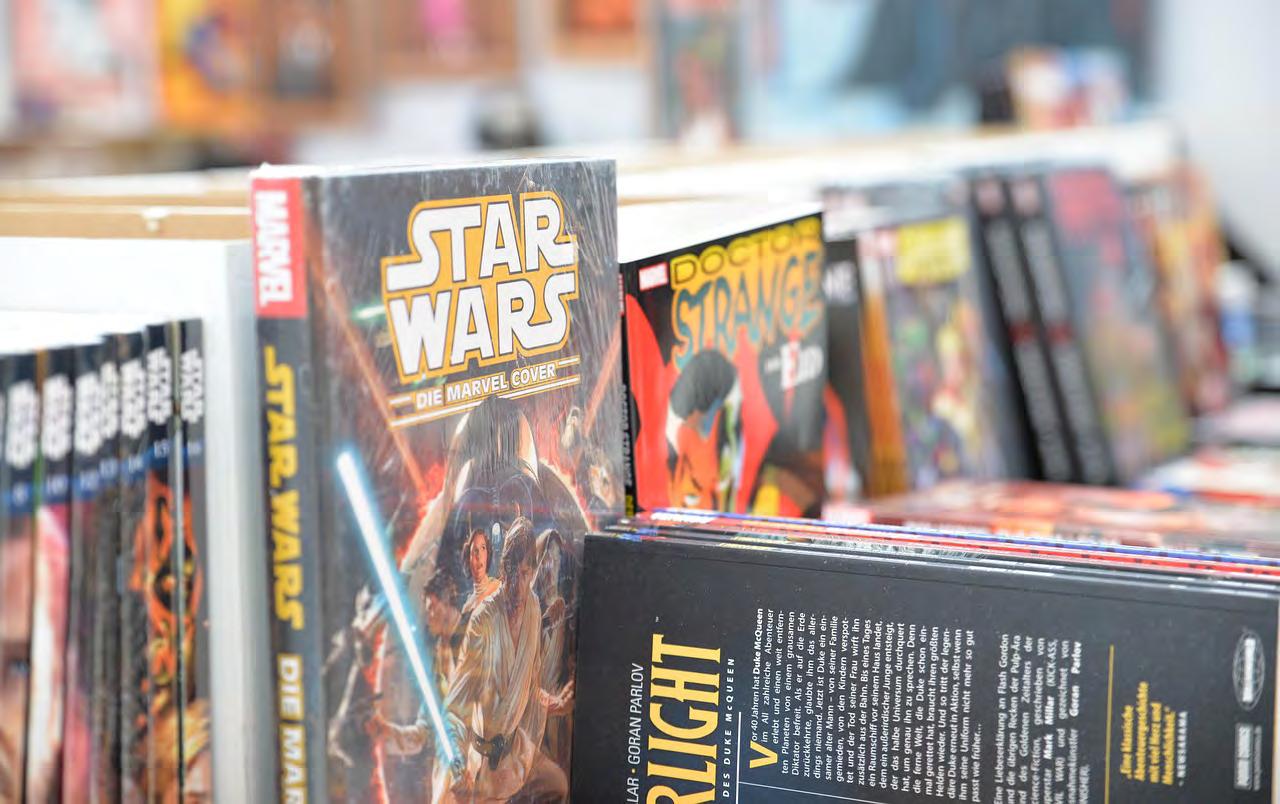
have their specialised language. And as for the belief that they are just picture books, have you ever studied the pictures as a young person would? The illustrations are working overtime helping with decoding and inferences from the text. For those that find reading a challenge, this helps them learn to infer and think critically about what they are reading, which connects them with the story and characters on a deeper level. Pictures are also crucial for our students with aphantasia. Imagine not being able to see a story unfolding in your mind. Having the graphic novel version of our English texts (where available) is beneficial to our students as it helps them understand the story so they join in more during class discussion, as well as being very helpful when it comes to writing about the text.
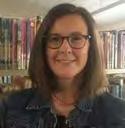
While graphic novels are great tools to have in the library for entertainment, educational purposes and scaffolding, I have found that they are also a great leveller. Everyone, at any reading level, can talk about these books together. Our library has a nice vibe these days as students are building little reading communities based around many of our graphic novels. There are in-depth discussions, groups making fan art, and plenty of people encouraging their friends to start a particular series so they can talk about it together. It fills me with happiness to think that the written (and illustrated) word can bring together so many students from so many ages and reading backgrounds.
Love them or hate them, graphic novels have found a home in school libraries, and I don’t think that will change anytime soon.
Lauryn Urquhart is Librarian at Taieri College in Mosgiel and SLANZA’s Otago NE representative. She has spent six years enjoying school life after having worked for 13 years at Dunedin Public Libraries, where she was heavily involved in preschool programmes.

GRAPHIC NOVELS: VALUING THEIR ROLE IN CHILDREN’S READING JOURNEYS

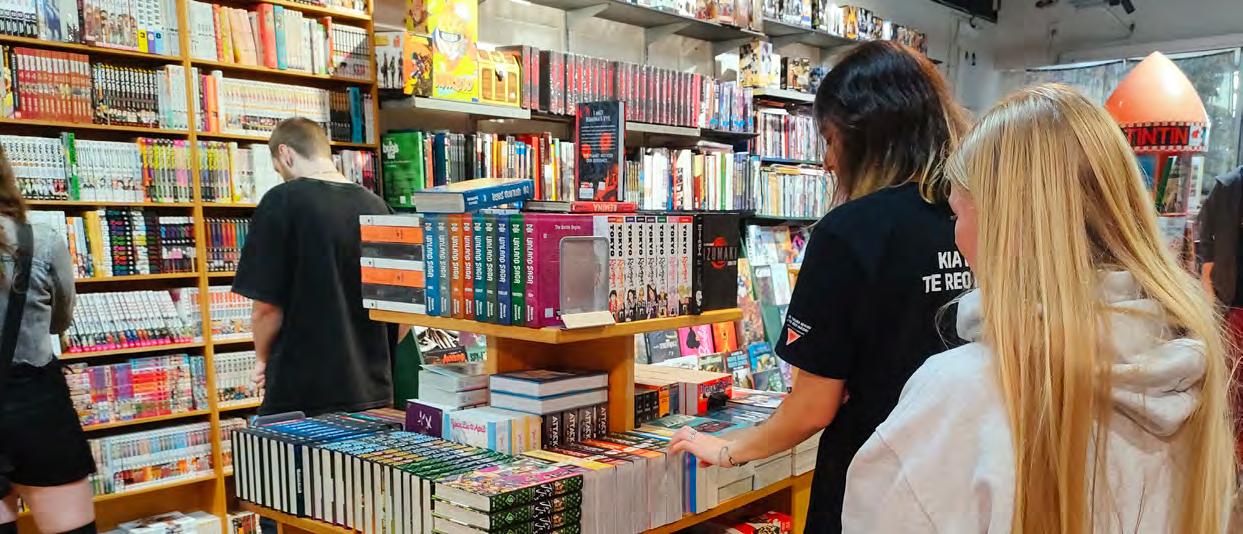
In recent years, graphic novels1 have experienced a notable surge in popularity, significantly transforming how many children and young people engage with reading. This trend has revitalised interest in books and underscored the importance of including graphic novels in library collections. 2 Nevertheless, there continue to be reservations from those who question the legitimacy of graphic novels as ‘real books’ or regard them as ‘too easy’.
THE VALUE OF GRAPHIC NOVELS
Contrary to the misconception that graphic novels possess limited educational merit, a growing body of research shows their significant role in enhancing literacy skills and reading enjoyment.
Findings from the National Literacy Trust research report, Children and Young People’s Engagement with Comics (2023)3, revealed that children who read graphic novels in their free time were twice as likely to enjoy reading overall and rated themselves as good readers, compared to those who did not.
Combining visual elements and text can support comprehension, decoding and retention. As The Children's Book Review notes, graphic novels are "wildly visually appealing, less intimidating, and can be jam-packed with humour and excitement”, making them particularly effective for reluctant readers.4
Becca James, in Redefining Literacy with Graphic Novels5 observed that students working carefully through a graphic novel strengthened their reading comprehension skills and demonstrated increased engagement with the material.
Numerous examples from librarians and educators illustrate how graphic novels often serve as a transitional bridge from picture books and early chapter books to more complex texts. As Elizabeth Segran explains: “Today, graphic novels are often the first books that elementary-school students will seek out for themselves and read on their own. And this is likely to shape a child’s lifelong relationship to reading.”6
Moreover, graphic novels frequently tackle complex subjects in accessible ways, providing opportunities to explore history, science, and social issues through a more approachable format. Bomb: The Race to Build – and Steal – the World’s Most Dangerous Weapon by Steve Sheinkin and Nick Bertozzi, for instance, chronicles the scientific discoveries and military intelligence behind the atomic bomb. Students who might otherwise find such content overwhelming may be more willing to engage with it in a graphic novel format.
ADDRESSING CONCERNS
Despite these benefits, some critics argue that graphic novels may not sufficiently develop the attention span and reading stamina required for longer, denser text. As Timothy Shanahan cautions: “Reading 15 words and looking at a picture… reading one interjection and looking at a picture… is quite a different challenge than reading hundreds and even thousands of words at a run. Such intellectual stamina isn’t likely to result from lots of graphic novel reading”.7
However, it is important to emphasise that no one advocates for graphic novels to be the sole component of a student’s reading experience. Instead, they represent one part of a rich reading journey.
SUPPORTING STUDENTS' READING JOURNEYS
While honouring students’ reading preferences is essential, as educators and reading role models, we should encourage them to broaden their scope. Such strategies8 as read-aloud sessions, book talks, and the introduction of a variety of genres
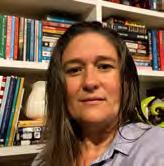
can facilitate this growth without undermining current interests.
As Alan Dingley, Te Awhi Rito Reading Ambassador, notes: “Encouraging children to explore different types of books without pressuring them to conform to a specific standard can lead to a richer and more fulfilling reading experience.”9
Respecting students’ present reading choices acknowledges that reading is a dynamic process. Over time, readers will naturally encounter a wide range of text types as their skills and interests evolve.
ACCESS AND PROMOTING
Library staff and teachers play a crucial role in ensuring access to a wide variety of reading materials, including graphic novels. By curating diverse collections, we can support students of varying interests and reading levels, fostering an inclusive reading culture that values pleasure as well as proficiency.10
Incorporating graphic novels into library collections11 is not merely about diversifying shelves; it's about recognising and validating the varied pathways through which students develop as readers. By embracing graphic novels, we can foster a love for reading, enhance literacy outcomes, and contribute to developing empathetic, well-rounded individuals.
In continuing to promote diverse reading experiences, we empower students to explore, learn, and grow through the rich and evolving world of literature.
Tracey Greenwood is the Senior Specialist Developing Readers in the Services to School Reading team. She has previously worked in schools in Aotearoa, New Zealand, and England. Her roles have included a curriculum learning designer, literacy programme developer, English teacher, dean and PRT mentor. She was a judge for the 2023 and 2024 Storylines Notable Book Awards.
1Graphic novels | Services to Schools
2Graphic Novels, Manga Explode in Popularity Among Students | SLJ Survey | School Library Journal
3Children and young people's engagement with comics in 2023 | National Literacy Trust
4How Graphic Novels Boost Literacy Skills and a Love of Reading
5Redefining Literacy with Graphic Novels by Becca James – MEJ
6Graphic novels are booming in popularity. It's changing children's relationship with books – Fast Company
7Beyond Graphic Novels for Reading Practice | Shanahan on Literacy
8Strategies to engage students as readers | Services to Schools
9Don’t get hung up on the rung | Reading Ambassador
10Reading for pleasure – a door to success | Services to Schools
11School Libraries Get "Graphic": An Analysis of Graphic Novels in the School Library Collection

I’M A LIBRARIAN AND YOU’RE RIGHT, MR LUXON. BUT NOT FOR THE REASONS YOU THINK
OPINION PIECE
For once, Prime Minister Christopher Luxon and I agree on something.
Librarians and fisheries officers are not comparable, and it is a problem when a pay equity claim starts to compare them. Fisheries Officers do vital work protecting our marine resources, and they deserve to be well-compensated for their work. Long hours in the hot sun, undertaking the stress of enforcement, and identifying a range of marine species work well-deserving of the kind of security and comfort a solid middle-class salary should deliver.
That said, it is work so different, and with such different qualifications, that it would be hard to make an argument that it has much at all to compare with the work of librarians. It’s like comparing apples and coffee mugs – both are valuable, but they don’t really have anything in common.
To try and solve this mystery, I reached out to Daniel Benson-Guiu, the Tertiary Education Union’s Te Pou Ahurei Takirua - Ahumahi Assistant National Secretary - Industrial, to get an understanding of how this comparison came about. He told me,
"The pay equity process is thorough and rigorous, and the male comparator process is important in determining, by agreement with employers, on roles that are different but of equal value.”
“Pay Equity uses comparators based on education and skills of similar or same level in a maledominated industry. Even with a comparator, it will not be a match exactly like for like. There was a database that the Pay Equity Taskforce maintained that held the comparators; the Taskforce was disestablished by this government.
Finding a male-dominated job that had a master’s degree as a minimum requirement was not possible, but we would have used one with the closest skill set. The skills to do the job of a Fisheries Officer are similar to a librarian’s skill set, however un-alike the job titles are.”
I will admit that I don’t know much about being a Fisheries Officer. But I’ve been a librarian since 2003, so I do know a thing or two about that.
Having read through the Hansard Question Time transcript from May 13, though, I am left wondering if anyone in the government knows what we librarians actually do or what qualifications are required to do it. And I am left certain that no one in government understands the long and somewhat dreary history of the ongoing struggle for professional recognition and respect that librarians have fought over the past hundred or so years.
Librarianship is, and long has been, a woman’s profession. In New Zealand, 80% of us are women. Melville Dewey, whose legacy is deeply tainted by his history of sexual harassment and abuse of the women he championed, was in large part responsible for this situation. He saw women as cheap and reliable labour for the budding field, and so part of his tarnished legacy is a profession dominated by women throughout its ranks.
But what is it that librarians do, really? And how should that work be valued?
Librarians stand at the nexus of information and people. We manage a priceless public resource, including sizable budgets across the sector. Selecting, purchasing, and maintaining books, newspapers, magazines, scholarly journals, databases, and government information is an extraordinarily complex undertaking. Doing it well means understanding the underlying shape of the discipline or area in which you collect.
No profession has been more fundamentally transformed by the rise of digital technologies than librarianship. Being a librarian now means having technical skills ranging from programming and systems administration to IT help desk skills and an understanding of the political economy of technology.
If you are a tertiary librarian, it means deeply understanding the interrelationships within your discipline and its connections to other disciplines. For children’s librarians, it means understanding the whole world of picture books, YA literature, middlegrade novels and nonfiction for children. But it’s not enough to understand the literary and publishing worlds. You must also understand the community your collection serves.
From basic demographics, including age, culture and language, to community sensibilities and preferences, librarians take their understanding of media – books, film, music, and more – and apply it to their local community to ensure that when you turn up at the library looking for a book, it will be there, on the shelf, for you.
And that’s before we even talk about the internet.
No profession has been more fundamentally transformed by the rise of digital technologies than librarianship. Being a librarian now means having technical skills ranging from programming and systems administration to IT help desk skills and an understanding of the political economy of technology.
That question of the political economy of technology is particularly crucial in times like these. With companies like Google, Meta, and X now using algorithms to serve up information and entertainment to people, librarians remain a vital community resource focused on truth, diversity of opinion, and equity of access.
What librarians do, at the end of the day, is guard our freedom of expression; that is, the right to seek, receive, and impart information that is at the heart of our shared democracy.
The Prime Minister himself raised concerns about disinformation during Question Time yesterday. He says he is seeing disinformation about the government’s pay equity scheme. That would be par for the course these days. Disinformation is rife within our information system.
Navigating that now polluted and deeply complex world of information and offering education to develop the skills needed so that truth can prevail in the public discourse is more challenging than ever, and there’s one profession with the skills needed to help us all, including the Prime Minister, overcome that challenge.
All of these beg the question of the qualification Daniel Benson-Guiu mentions, the Master of Library Science. Fisheries Officers receive onthe-job training and a three-week training course. Librarianship, however, requires a Master of Library Science or, for some entry-level public library roles, a 120-credit Level 5 Diploma in Library and Information Studies. Further advancement requires a master’s degree.
So, the Prime Minister is correct, it is unfair to compare the two roles. It is curious that the Pay Equity Taskforce was unable to find even a single male-dominated profession with comparable skills that required a master's degree.
Could it be that a woman’s profession has an inequitable and costly barrier to entry? The question of how necessary the Master’s of Library and Information Science is to the profession is a contested one, though I fall firmly in the camp that supports the degree as a requirement.
But it does further serve to financially disadvantage women over men in apparently comparable roles, which, given that pay equity is the matter in question, brings us to the heart of the matter: Why does this government fail to value the work of women? Why are pay equity claims that have been sitting for years being tossed out?
Librarianship is a thriving and vital part of our communities and our economy. How can we attract new staff when our work is being denigrated by the Prime Minister and our pay packets barely cover our student loan bills? The reality is that the work of librarians is more important than ever. We hold the skills needed not just for our economy's growth, but for maintaining a healthy democracy.
Isn’t that worth at least as much as a Fisheries Officer?
Read the LIANZA statement to the media on the pay equity changes here.
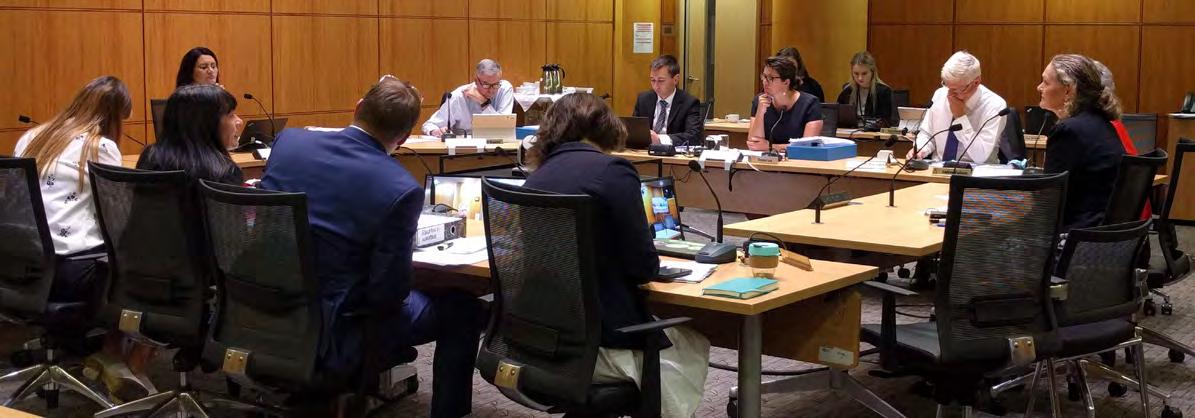
Written
by
Mandy Henk
, Mandy is a librarian, writer, and the co-founder of Dark Times Academy. This article was initially published in Newsroom on May 14 and reprinted here with permission.

BEST BOOKS OF THE YEAR

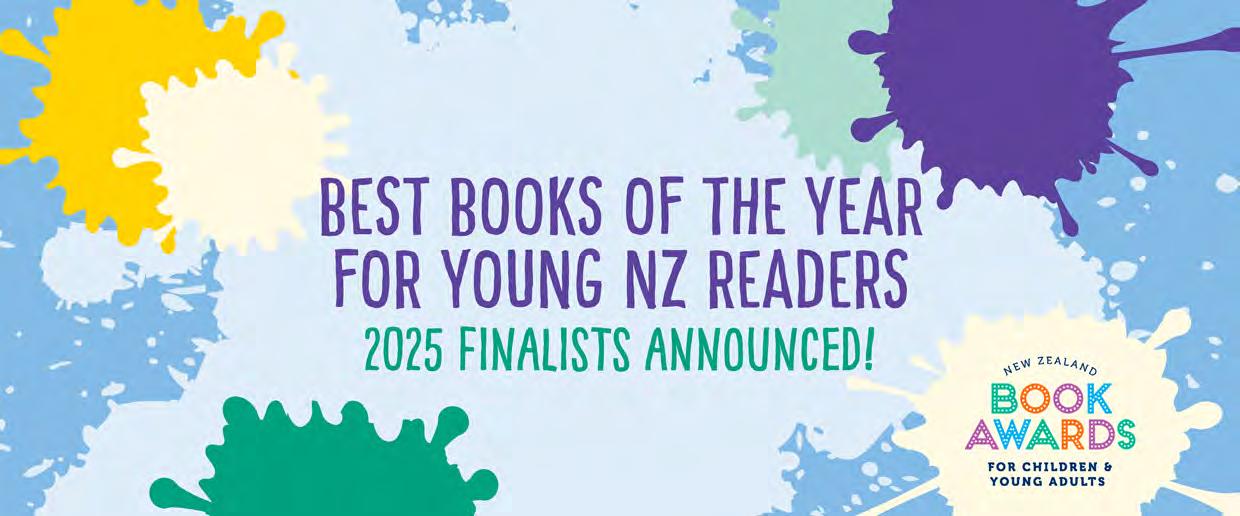
FAMOUS FACES FEATURE IN 2025 CHILDREN’S BOOK AWARDS SHORTLIST ANNOUNCED JUNE 5
Well-known media personalities, bestselling authors and previous award winners are among the extremely strong shortlist of 32 titles for the 2025 New Zealand Book Awards for Children and Young Adults.
Musician and presenter Anika Moa, respected journalist and broadcaster Miriama Kamo and bestselling author and child psychiatrist Hinemoa Elder join previous winners, including Gavin Bishop, Ruth Paul and Bren MacDibble, as well as numerous other highly regarded and emerging writers and illustrators.
The 2025 shortlist “explores some of the many ways to be a New Zealander: our people, our place and our preoccupations,” says the convenor of judges Feana Tu‘akoi.
“Among the finalist books, big ideas from our past, present and possible dystopian futures are considered in absorbing and thoughtful ways, providing springboards for deeper discussion. Themes include identity, connection, mental health, our histories, traditional wisdom, indigenous languages, and the importance of being exactly who we are.”
This year’s two expert judging panels – a bilingual English and Māori panel and a separate Te Kura Pounamu panel to judge titles written in te reo Māori –were impressed by the calibre of the 156 entries.
Whether a deceptively simple board book aimed at our youngest tamariki, or a sophisticated novel for rangatahi, this year’s shortlist deftly connects our best writers and illustrators with the most discerning of readers – children and teenagers, the judges say.
These young readers were again involved in the judging process. Kura kaupapa Māori, primary, intermediate and secondary schools across the motu all put their hands up to receive entries in relevant categories and were given judging guidelines and review templates to encourage considered feedback for the judging panel. In total, 51 schools participated, and 450 reviews were supplied for consideration.
The ceremony to announce the winners will take place at Pipitea Marae in Wellington on the evening of Wednesday, 13 August. A programme of large-scale Books Alive events, in which finalist authors and illustrators bring the magic of books to life at sessions for school children will be held for Palmerston North and Manawatū school children on Tuesday 22 July, alongside events in Invercargill (30 July), Christchurch (7 August) and Wellington (13 August).
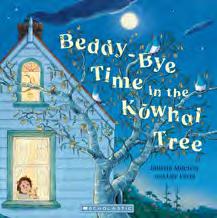
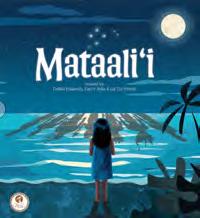
The BookHub Picture Book Award
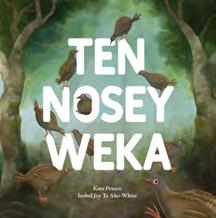
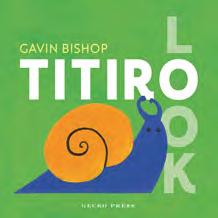
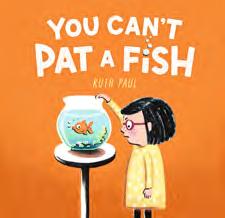
• Bedd y Bye Time in the Kōwhai Tree, Juliette MacIver, illustrated by Lily Uivel (Scholastic New Zealand)
• Mataali‘i, Dahlia Malaeulu (Vaivase Tai, Sinamoga), illustrated by Darcy Solia (Mila's Books)
• Ten Nosey Weka, Kate Preece, illustrated by Isobel Joy Te Aho-White (Ngāti Kahungunu, Kāi Tahu) (Bateman Books)
• Titiro Look, Gavin Bishop (Tainui, Ngāti Awa), translated by Darryn Joseph (Ngāti Maniapoto, Ngāti Rereahu) (Gecko Press, Lerner Publishing Group)
• You Can't Pat a Fish, Ruth Paul (Walker Books Australia)
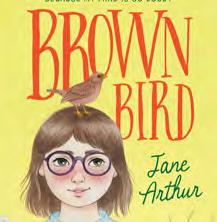
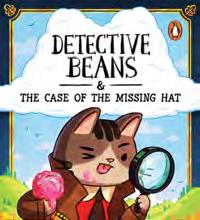
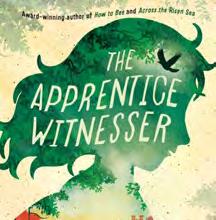
Wright Family Foundation Esther Glen Junior Fiction Award
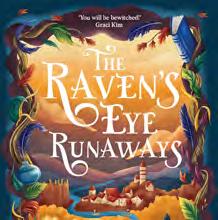
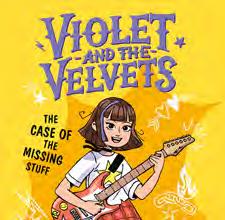
• Brown Bird, Jane Arthur (Penguin Random House New Zealand)
• D etective Beans and the Case of the Missing Hat, Li Chen (Penguin Random House New Zealand)
• The A pprentice Witnesser, Bren MacDibble (Allen & Unwin)
• The Raven's Eye Runaways, Claire Mabey (Allen & Unwin)
• V iolet and the Velvets: The Case of the Missing Stuff, Rachael King, illustrated by Phoebe Morris (Allen & Unwin)
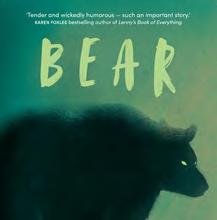
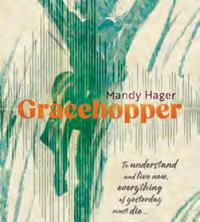
Young Adult Fiction Award
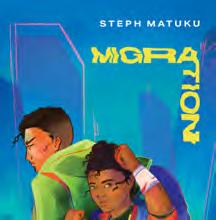
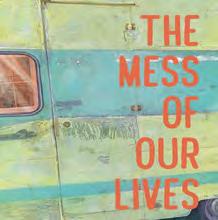
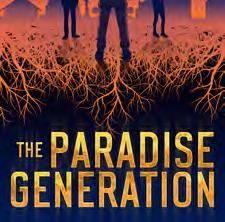
• Bear, Kiri Lightfoot, illustrated by Pippa Keel Situ (Allen & Unwin)
• Gracehopper, Mandy Hager (One Tree House)
• Migration, Steph Matuku (Ngāti Tama, Ngāti Mutunga) (Huia Publishers)
• The Mess of Our Lives, Mary-anne Scott (One Tree House)
• The Paradise Generation, Sanna Thompson (umop apisdn press)
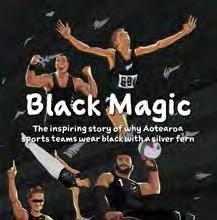
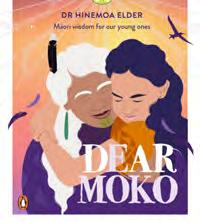
Elsie Locke Award for Non-Fiction
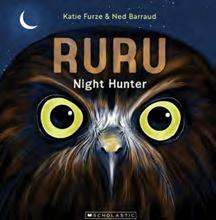
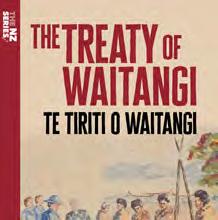
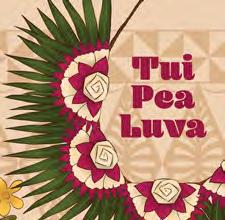
• Black Magic, David Riley, illustrated by Munro Te Whata (Ngāpuhi, Ngāti Porou, Makefu) (Reading Warrior)
• D ear Moko: Māori Wisdom for our Young Ones, Hinemoa Elder (Te Aupōuri, Te Rarawa, Ngāti Kurī, Ngāi Takoto, Ngāpuhi nui tonu) (Penguin Random House New Zealand)
• Ruru: Night Hunter, Katie Furze, illustrated by Ned Barraud (Scholastic New Zealand)
• The Treaty of Waitangi, Ross Calman (Ngāti Toa, Ngāti Raukawa, Kāi Tahu) (Oratia Books)
• Tui Pea Luva, by Mele Tonga Grant, illustrated by Luca Walton (Mila's Books)
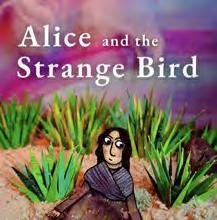
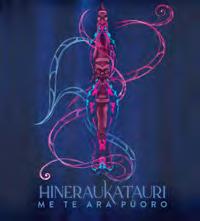
Russell Clark Award for Illustration
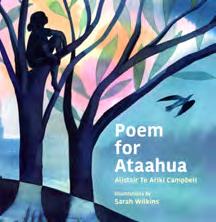
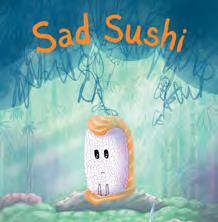

• A lice and the Strange Bird, Isaac du Toit (Isaac du Toit)
• Hineraukatauri me Te Ara Pūoro, illustrated by Rehua Wilson (Te Aupouri, Te Rarawa), written by Elizabeth Gray (Ngāti Rēhia, Ngāti Uepōhatu, Tama Ūpoko ki te awa tipua, Ngāti Tūwharetoa anō hoki) (Huia Publishers)
• Poem for Ataahua, illustrated by Sarah Wilkins, written by Alistair Teariki Campbell (Reading Warrior)
• S ad Sushi, Anna Aldridge (Anna Aldridge)
• You Can't Pat a Fish, Ruth Paul (Walker Books Australia)
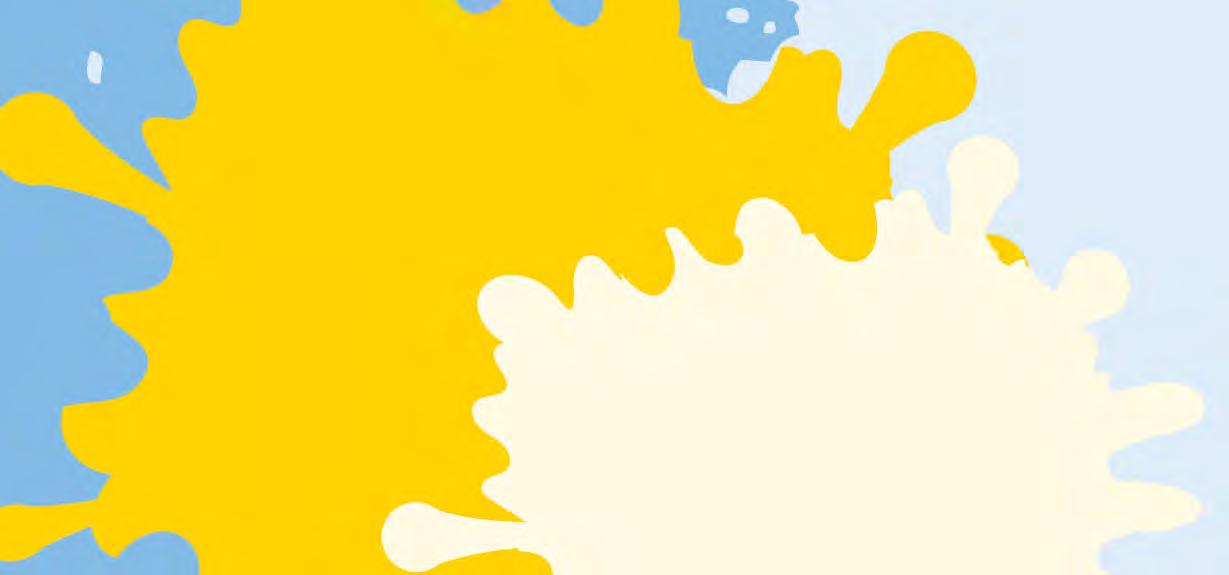
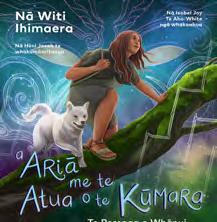
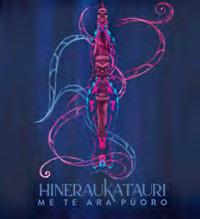
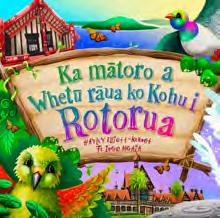
Wright Family Foundation Te Kura Pounamu Awards
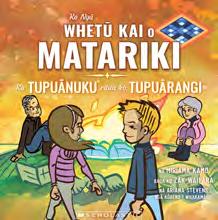
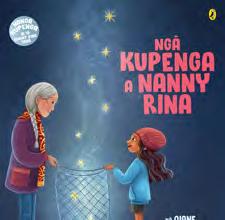
• A A riā me te Atua o te Kūmara, Witi Ihimaera (Te Whānau a Kai, Rongowhakaata, Te Aitanga a Mahaki, Ngāti Porou), illustrated by Isobel Joy Te Aho-White (Ngāti Kahungunu, Kāi Tahu), translated by Hēni Jacob (Ngāti Raukawa) (Penguin Random House New Zealand)
• *Hineraukatauri me Te Ara Pūoro, Elizabeth Gray (Ngāti Rēhia, Ngāti Uepōhatu, Tama Ūpoko ki te awa tipua, Ngāti Tūwharetoa anō hoki), illustrated by Rehua Wilson (Te Aupouri, Te Rarawa) (Huia Publishers)
• K a mātoro a Whetū rāua ko Kohu i Rotorua, Hayley Elliott-Kernot, translated by Te Ingo Ngaia (Taranaki, Ngāruahine, Te Ātiawa, Waikato-Maniapoto, Ngāti Whakaue, Te Whānau-a-Karuai ) (Round Door Design)
• Ko ngā Whetū Kai o Matariki, ko Tupuānuku rāua ko Tupuārangi, Miriama Kamo (Ngāi Tahu, Ngāti Mutunga), illustrated by Zak Waipara (Ngāti Porou, Ngāti Ruapani, Ngāti Kahungunu, Rongowhakaata), translated by Ariana Stevens (Poutini Ngāi Tahu) (Scholastic New Zealand)
• *Ngā Kupenga a Nanny Rina, Qiane Matata-Sipu (Te Waiohua, Waikato, Ngāpuhi, Ngāti Pikiao, Cook Islands), illustrated by Isobel Joy Te Aho-White (Ngāti Kahungunu, Kāi Tahu) (Penguin Random House New Zealand)
* Indicates a finalist book originally written in te reo Māori
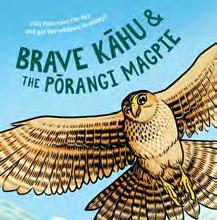
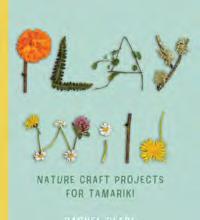
NZSA Best First Book Award
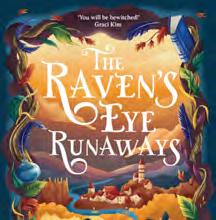
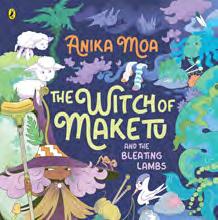
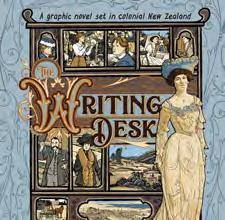
• Brave Kāhu and the Pōrangi Magpie, Shelley Burne-Field (Ngāti Mutunga, Ngāti Rārua, Te Ātiawa, Sāmoa) (Allen & Unwin)
• Play Wild, Rachel Clare (Bateman Books)
• The Raven's Eye Runaways, Claire Mabey (Allen & Unwin)
• The Witch of Maketu and the Bleating Lambs, Anika Moa (Ngāpuhi, Te Aupōuri), illustrated by Rebecca ter Borg (Penguin Random House New Zealand)
• The Writing Desk, Di Morris (Bateman Books)


WHY WAIMAKARIRI LIBRARIES STRIVE TO BE DEMENTIA FRIENDLY
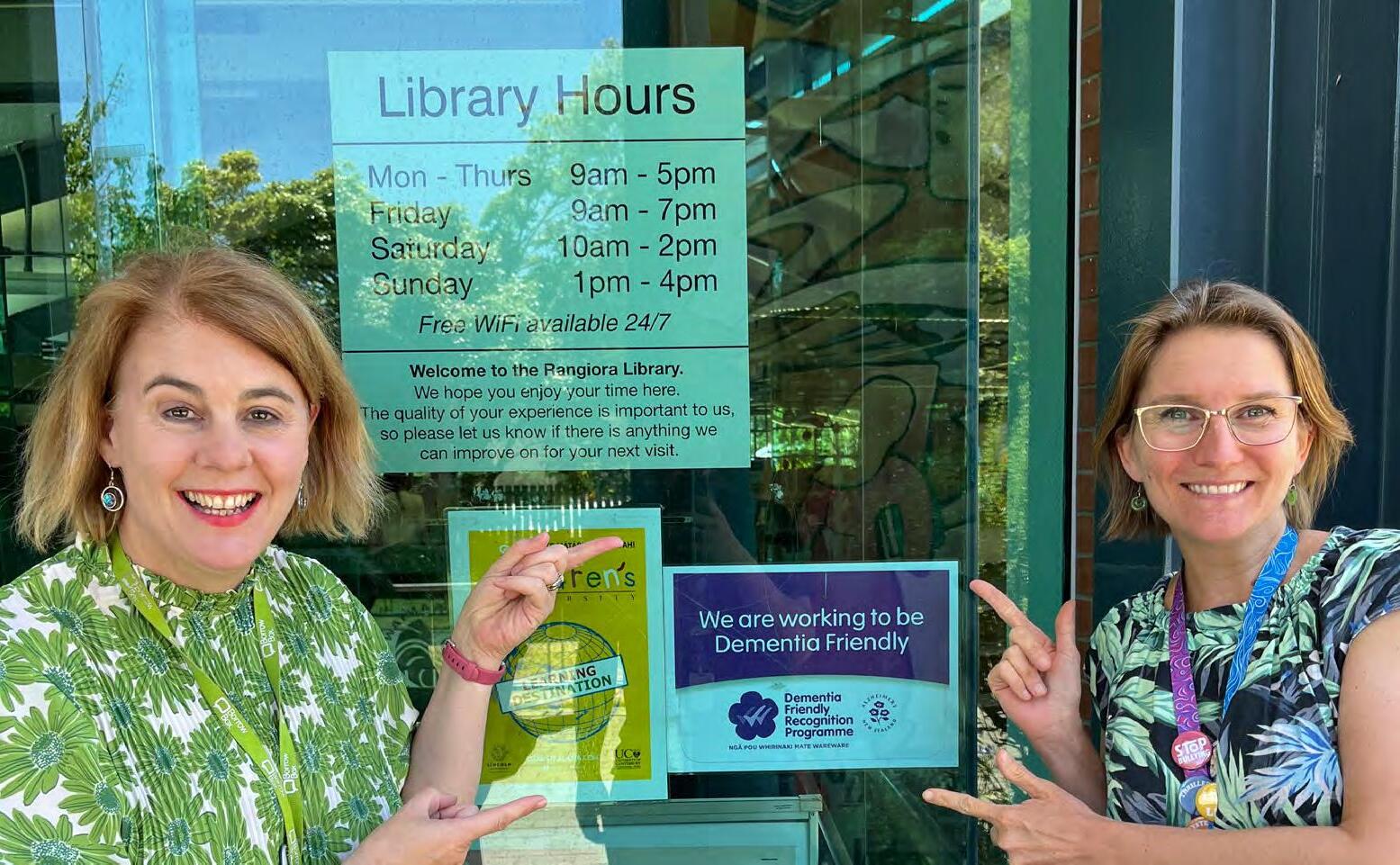
Waimakariri District's population is aging. In the 2023 census, over 20 per cent of the population were over 65, and the number of those living with dementia mate wareware increased too. So, it made sense for Waimakiri libraries to focus on services for this age group and more specifically, services for those living with dementia mate wareware and their whānau.
In August 2024, Learning and Heritage Team Leader, Janina Good, sat down with her team and devised a plan to make Waimakariri Libraries more dementia friendly. Some initiatives were created with community members living with the condition in mind, and others were existing initiatives that needed to be looked at through a dementia friendly lens and tweaked.
One of the main things we introduced was our dementia friendly collection ‘A Suitcase full of Memories’ in September 2024. The collection comprises curated suitcases that evoke memories through items and reading materials. Each suitcase is themed: On the Farm, In the Garden, and At Home. Reconnecting with memories can be a joyful and stimulating experience for people with dementia and provide a tool for friends and whānau to create conversations and make connections.
So far, we have had a handful of people borrow this resource, plenty of positive feedback and even interest from other libraries wanting to do something similar. While the collection was initially housed at Rangiora Library, we have curated a second set of suitcases and spread these to
our other locations in Kaiapoi and Oxford. All suitcases can move between the libraries via holds.
Monthly, two of our staff run the Next Chapter Group in collaboration with Dementia Canterbury. Participation in this group is on a referral basis only. Dementia Canterbury refers people living with dementia mate wareware to the group if they think it may be beneficial to them. At this stage, about 10 people attend each month with varying stages of dementia. The session runs for 90 minutes and aims to be a fun, social time with a range of themed items and objects presented that may evoke memories and invite discussion. Themes so far have been spring, music, gardening, and a day at the races.
Library Assistant Twyla Pearce enjoys hosting the group at Kaiapoi Library. “It’s wonderful to see friendships forming and to learn more about their stories.”
To help start those conversations during the session, they might play bingo, run a quiz, listen to music, sing a song, or use one of our suitcases from our ‘A Suitcase full of Memories’ collection. These initiatives must work well, as Twyla says, there is always lots of talking. On occasion, it has been known to go off topic, but compared to other groups, this is seen

Dementia friendly announcement. Image supplied.
as a success as it fulfils the purpose of the group, to create conversations and foster connections.
For those who have not been referred to the Next Chapter Group, Waimakariri Libraries host alternative groups which have a similar focus. For example, we offer Shared Reading Groups on a fortnightly basis. In April 2024, five Waimakariri Libraries team members trained with The Reading Revolution to learn how to plan and run shared reading groups for our hapori (community).
At each session, a library staff member in the role of a Reader Leader reads literature aloud to the group and encourages those attending to respond to what has been read. In response, participants might share thoughts, feelings, or memories the reading evoked. Like the Next Chapter Group, the purpose is to connect with others through conversations, and literature is the aid in this group.
Although not created specifically for those living with dementia mate wareware, the Reading Revolution project believes "Shared Reading helps us to understand our individual and collective inner lives, round the same table, at the same time.”
The Talking Cafe at Oxford Library is another alternative group on offer where Oxford Health Coach Jan facilitates group conversations over tea or coffee. Discussion ranges from current affairs to personal happenings, and Jan helps guide the conversation when needed.
Outside of our dementia-friendly curated offerings, we decided it was important for our team to consider those living with dementia mate wareware in every aspect of our space. One of the ways we did this was by asking all staff to complete the ‘Dementia Friend’ certification. In the short online course, you learn what dementia is, how to spot it and how best to support those who live with it. You also hear about their individual experiences from those living with dementia mate wareware. Waimakariri Libraries leadership team has now added the training into all future onboarding processes.

Our efforts were officially recognised in December 2024 when Alzheimers New Zealand awarded us ‘Working To Be Dementia Friendly’ status, a category of their Dementia Friendly Recognition Programme.
Alzheimer's NZ Chief Executive, Catherine Hall, praised Waimakariri Libraries staff for the status: "Being recognised as dementia friendly is a real achievement because it takes a huge amount of time, effort and commitment to your customers and staff. It has also been a real achievement because you have only worked on this for six months.”
This achievement is far from the end of our journey. As a team we will continue to look through our initiatives and programmes with a dementia friendly lens and tweak them to suit our hapori better.
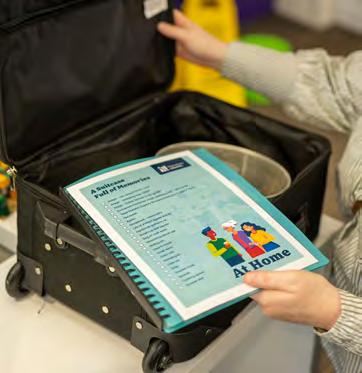

Jen Black holds the Assistant Librarian Communications role at Waimakariri Libraries. Prior to this role, she worked in media as a producer.
A suitcase full of memories. Image supplied.

LIBRARIANS AND WIKIPEDIA: AN IDEAL INFORMATION PARTNERSHIP
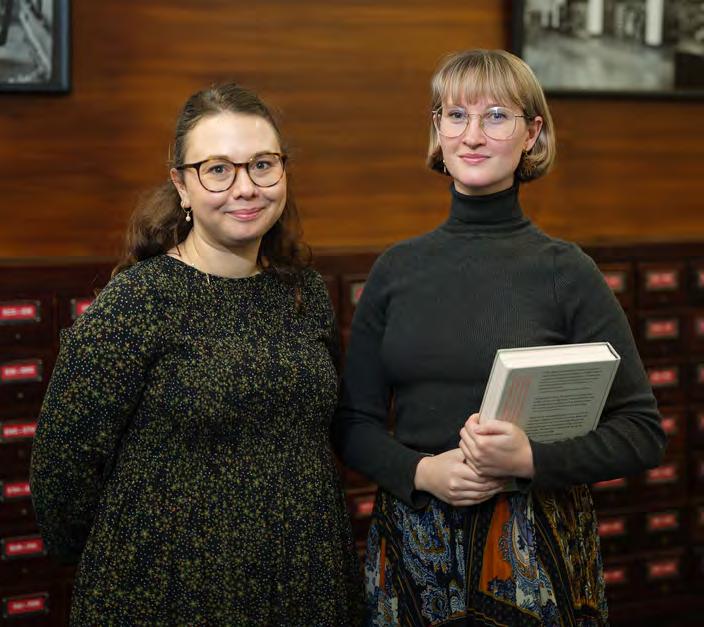
Librarians are the keepers and disseminators of information and knowledge. Not too far from the world of libraries is an online platform where Wikipedians contribute to the world’s largest encyclopedia, Wikipedia. Whether imparting knowledge on a topic of interest, meticulously combing through articles to spot grammatical errors, or tackling information bias head-on, Wikipedians unite in a shared goal to make knowledge free, open and accessible for all.
At Tāmaki Paenga Hira Auckland War Memorial Museum we have worked with Wikimedia platforms since 2017. This took a new shape in 2020, when we began thinking more strategically about how Wikipedia could help address our wider goals of collecting, preserving, and sharing the cultural and natural histories unique to Tāmaki Makaurau Auckland, Aotearoa New Zealand, and our place in the Pacific.
We hope that using Wikipedia as a tool for connection will serve not only as an educational platform but also as a new way for people to engage with our collection and share our stories and histories. This communityled approach also makes our mahi reachable beyond the Museum’s walls, enhancing accessibility to knowledge and facilitating global participation.
As Wikimedian in Residence at the Museum, my role centres on dispersing our research, collections and knowledge across Wikimedia platforms such as Wikipedia , the free online encyclopedia, Wikimedia Commons, the free-to-use image repository, and Wikidata, the multilingual and structured database. I also organise and host events that encourage participation in the Wikipedia movement. This includes supporting Museum staff in learning how they can contribute their expertise to Wikimedia platforms.
Our Collection Access Librarians, Madison Pine and Bethany Gwynne, have recently taken part in Wikimedia training and are considering how they can contribute further. Their research interests span Aotearoa New Zealand history,

women in history, activism, art and folklore. With research, connection, and synthesis of information at the core of a Wikipedian’s role, librarians are naturally the ideal contributors.
After sharing the sobering statistic that, as of December 2024, only just over 20% of biography pages on Wikipedia are about women, Madison and Bethany’s project goals became clear. Drawing on their familiarity with the Museum’s significant documentary heritage resources, they began enriching and improving articles about women important to Aotearoa New Zealand’s history. After just one training session, they contributed to pages for botanical artist Sarah Featon, artist and translator Bessie Hocken, photographer Rose Frank and poet Ursula Bethell.
Ideas soon started forming about which books to reference and which remarkable women deserved pages. Madison and Bethany quickly found their niche within the Women in Red movement. This international Wikipedia project aims to address the systematic and gendered biases present on the platform. When a Wikipedia article does not exist, the link appears in red. It turns blue once the article is created. By creating and enhancing articles about women, women’s histories, and women's issues, Women in Red participants work to close the gender gap, ensuring women and non-binary folk are represented online and recognised for their achievements.
Disparities exist not only in the content on Wikipedia but also with the contributors. Only about 10% of Wikipedia editors identify as women. New editors like Madison and Bethany are vital to helping balance out the Wikipedia ecosystem.
Bethany reflects on her experience, describing Wikipedia as a welcoming and collaborative environment.
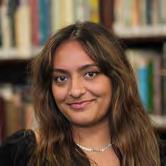
“The sense of community and shared enterprise on Wikipedia is inspiring – adding to an article has the same gratifying feeling as placing pieces in a puzzle, and it's a surprisingly fun and empowering experience to have such a breadth of subjects to work on. Having many options lets you narrow in on topics you care about.”
Building on this sense of empowerment, Madison shares how Wikipedia has deepened her understanding of research and citation practices.
“Learning more about Wikipedia has been incredibly rewarding, having often used Wikipedia as a first port of call for research, it has been really interesting to learn more about editing and adding information to Wikipedia. It has been fun to utilise some of the library resources to edit and add citations to Wikipedia articles. I have also enjoyed the opportunity to develop my research interests in finding information to add to or create Wikipedia articles.”
With most of the skillset already secured due to their library expertise, Wikipedia came as a surprisingly simple and meaningful partnership. Bethany and Madison’s experiences echo my own sentiments about editing Wikipedia, that it can be both empowering and rewarding. Whether it's joining us in the Women in Red movement, refining your research skills, deep diving into history topics or exploring your various niche interests- Wikipedia welcomes you!
You can find out more about the work we do on the Auckland Museum Wikipedia GLAM project page. If you would like to know how you can contribute to Wikipedia, please get in touch via wikipedia@ aucklandmuseum.com.
Anjuli Selvadurai (she/her) is a Wikimedian in Residence at Tāmaki Paenga Hira Auckland War Memorial Museum; her role is funded by Wikimedia Aotearoa New Zealand. Anjuli holds a Masters of Heritage Conservation specialising in Museums and Cultural Heritage from The University of Auckland. Image credit Richard Ng.


MEMBERSHIP JOURNEYS
Ahead of the LIANZA member renewal period, which begins July 1, Te Rau Ora Library Life talks to some of our valued members about their membership journey.
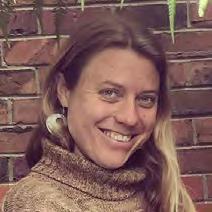
Marlies Zyp Van der Laan RLIANZA is the team leader of online research services for Auckland Libraries. Marlies is the LIANZA Standing Committee on Freedom of Information's current chair and an initiator of the Libraries Challenge Register.
I was working as a library assistant when I decided to commit to building a career in libraries. I mapped out a progression plan which involved getting my Master's in Information Studies from Te Herenga Waka Victoria University, getting a librarian job, and also getting LIANZA Professional Registration. I saw LIANZA as an organisation that validated and affirmed my career, so becoming a member was an obvious step. My work had an existing system where they paid for the membership, and there were no requirements to become a member, so it was easy.
LIANZA membership has provided other opportunities too. I wanted to give back to the sector and work in an area that was meaningful to me, so being a member enabled me to join the Standing Committee on Freedom of Information and later become the chair. Membership also helped me to take advantage of the LIANZA grants scheme and I was lucky to be awarded the Paul Reynolds “No Numpties” grant in 2024.

I am proud to have LIANZA membership, representing a step in my career journey and continuing development. It has served me well in job interviews and other professional development opportunities as a show of investment in the broader profession. I also recognise the great operational, strategic, and advocacy work that LIANZA does, and it feels good to support that through membership.
The biannual conference is a real career highlight. The opportunity to gather with colleagues from various professions and specialities within our profession is a lot of fun and an invaluable way to make connections. Hearing keynotes and other professionals present on their work has been inspiring and fascinating, and I’ve learnt a lot from attending.
Most of LIANZA’s offerings to the sector are free. If you are reaping the benefits of attending a webinar, professional registration, reading a statement, or using some resources they’ve created, I’d encourage you to consider getting a membership. All these things cost money behind the scenes, and membership is a major source of income to LIANZA.

Philip Miles works as Simplification Lead at Auckland Council and was the Digital Solutions Lead at Auckland Libraries beforehand. Philp, a long-time LIANZA member, ex-LIANZA Council member, and current chair of the LIANZA SLANZA Tertiary Grants Project, tells us why he’s a LIANZA member.
Becoming a member of LIANZA just seemed like a natural part of being an information professional and wanting to advance my career. It has allowed me to make professional connections and access development opportunities. I have been grateful for the advocacy work done on our behalf. Who's to say whether the NZLPP funding would have happened without prior advocacy work?
Through my work in LIANZA communities and on council, I've valued the chance to gain experience in areas that haven't always been part of my day job – things like strategic planning, risk analysis and budgeting.
I would say do it for anyone thinking about joining (or renewing), and you get what you give. You don't have to put your hand up for every committee going. Just attending the odd webinar or the AGM and sharing your experience indicates that you are supportive of LIANZA and the growth of the profession. Others will recognise this.
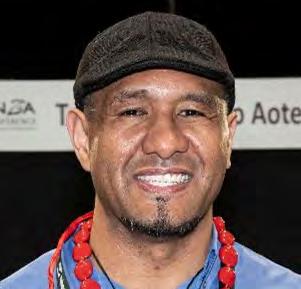

Richy Misilei is the outgoing Immediate Past-President of LIANZA and the Connected Communities Lead and Coach, ŌtaraPapatoetoe, Auckland Council.
I became a LIANZA member as it was a requirement for a library manager role, which I had applied for and was successful in obtaining.
Being part of LIANZA has connected me with people across the motu –and even overseas – which has been an immensely valuable part of my LIANZA journey. While I’ve gained a lot of learning through my membership, nothing compares to the value of the camaraderie and relationships I’ve built with others in the sector.
My membership allowed me to stand for Council, and more specifically, to take on the role of President. The experience I’ve gained through this governance role is something I value deeply. LIANZA is a conduit for connecting and working with others across the sector, beyond our immediate organisations. The chance to gain perspectives shaped by experiences different from our own is truly precious.
I can easily stay in familiar and known spaces –and that might have been my entire experience in the library and information sector had LIANZA not been part of my professional life. It has opened my eyes to what’s happening beyond my immediate workplace, and, as I mentioned earlier, the relationships I’ve formed through LIANZA have been incredibly important to me. We can be friends too if you join ha!
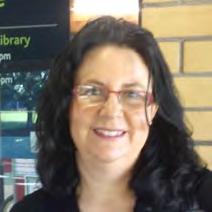
Amanda Bond RLIANZA is a Facilitator National Capability with National Library’s Service to Schools. Amanda is the chair of the LIANZA Professional Registration Board.
My start with LIANZA was a pragmatic, selfinterested one. I was already a member of SLANZA because I was a school librarian when LIANZA brought in a system for SLANZA members to become professionally registered.
I thought at the time that being professionally registered acknowledged the professionalism of librarianship and the bodies of knowledge guided professional development. That’s important if you’re in a stand-alone librarian role – it enables professional discussions with employers who may not have that knowledge.
When I was overseas, my professional revalidation process was lifesaving. It was so productive for me to get the feedback – wonderful, aspirational and constructive. I was in a lonely and isolated job, and this helped keep me grounded and connected with the profession in New Zealand (I was working in Turkey at the time).
I was getting the LIANZA magazines and information to help me gain knowledge and keep abreast of the New Zealand scene. My LIANZA membership has elevated my professionalism, especially with professional registration. And I’ve been able to give back like I received by being chair of the Board.
You need to be involved to get the most out of your membership. I’m excited to see the changes that LIANZA is looking at for the future and the way membership connects you to people all over the country. Every time you step into things with LIANZA – more doors open and you connect with more people, and more sparks ignite in your work!
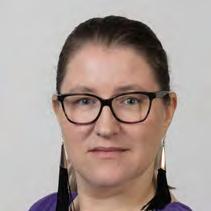

Shiobhan Smith is Associate University Librarian at the University of Otago Library.
I joined LIANZA mid-career – and honestly, I wish I’d done it sooner. Even at this stage in my professional journey, I’ve gained so much from the networks, shared knowledge, and development opportunities LIANZA provides. It’s opened conversations and collaborations that continue to enrich my work.
One of the things I love about LIANZA is the way it brings together people from across the entire library and information sector. That cross-sector perspective is powerful – it’s helped me see challenges and opportunities through a much broader lens. I’ve particularly valued being active in the Tertiary Libraries Special Interest Group (TELSIG) and in the Murihiku regional group, and I’ve greatly enjoyed attending the LIANZA conference, which brings such energy, ideas, and community together in one place.
If you're considering joining, don’t wait. Whether you’re just starting out or deep into your career, LIANZA has something meaningful to offer – and a community that supports and inspires.
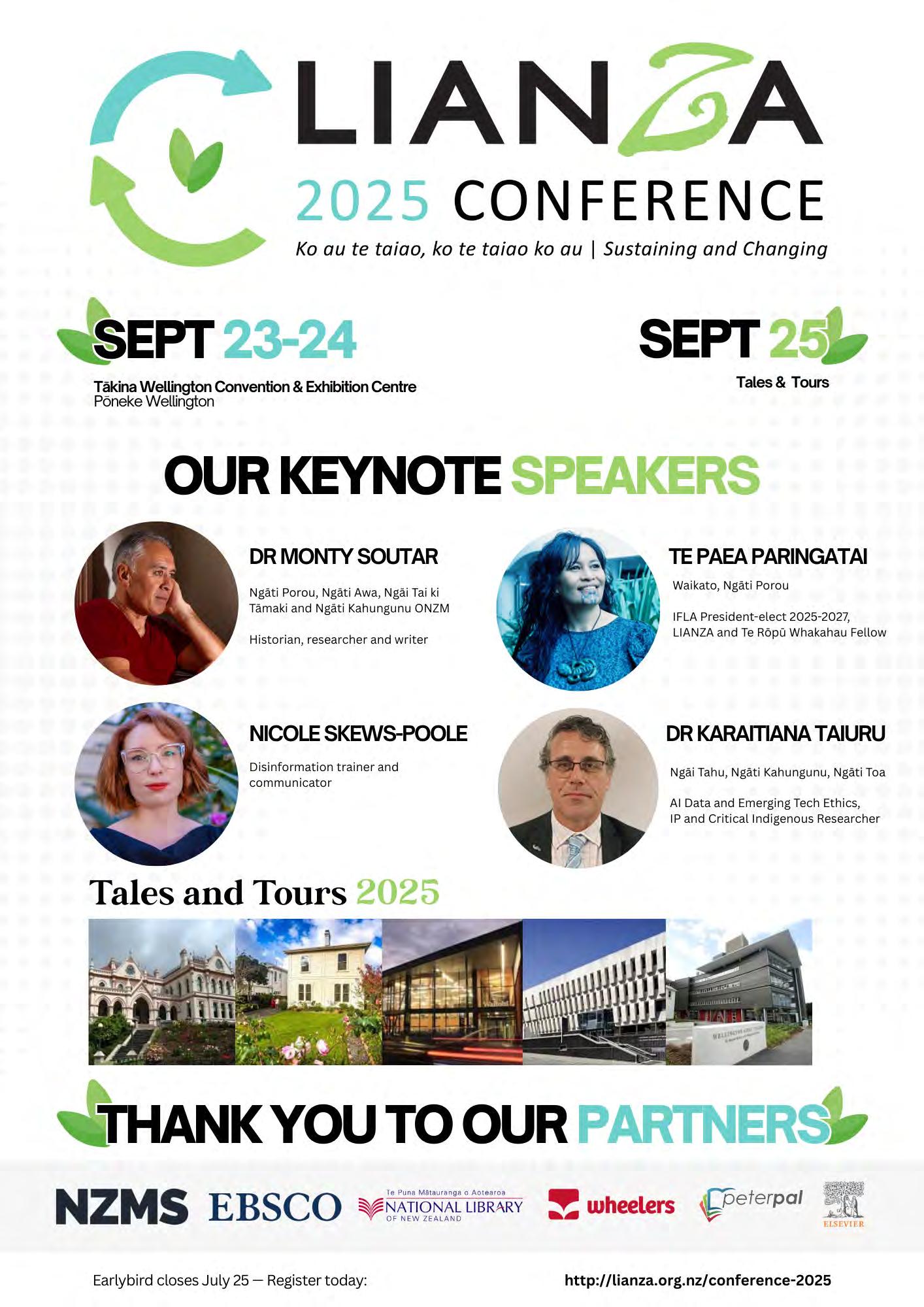
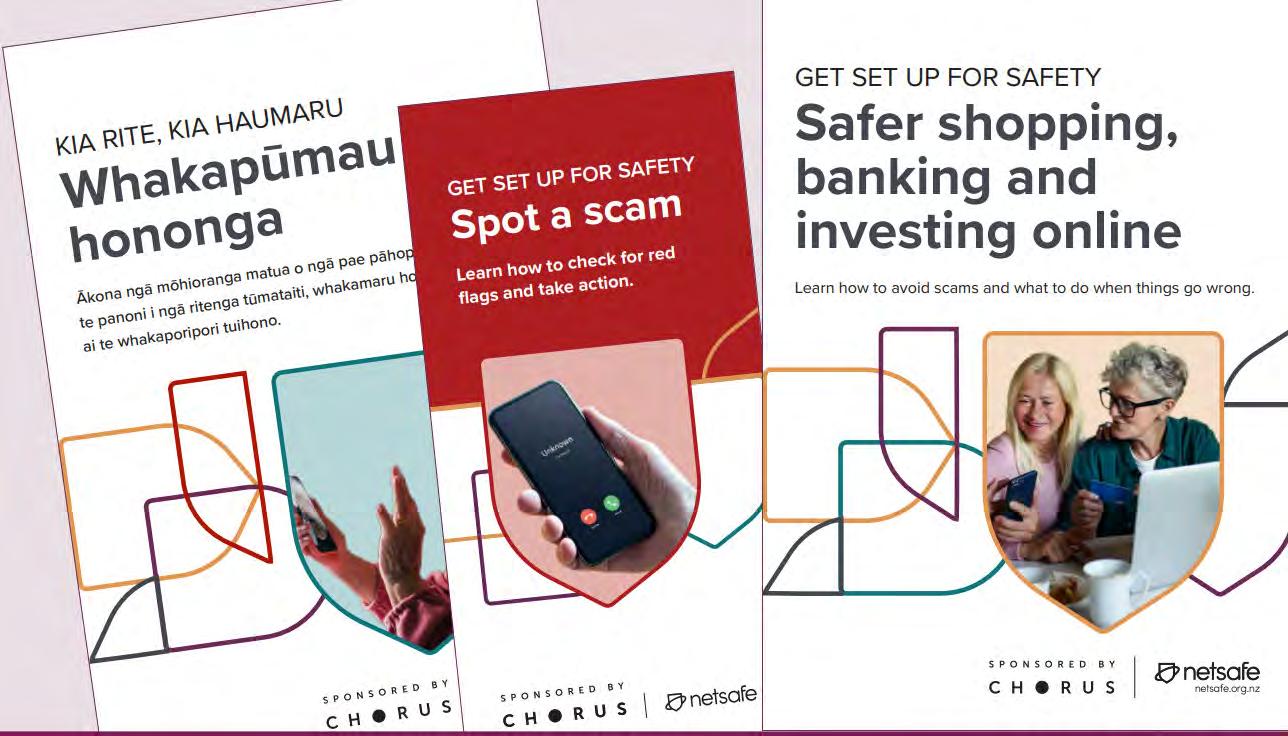

EMPOWERING AOTEAROA’S LIBRARIANS
SUPPORTING DIGITAL LITERACY AND ONLINE SAFETY WITH NETSAFE
By partnering with Netsafe, library and information kaimahi across all settings can be proactive digital leaders, supporting safer, smarter, and more inclusive digital participation.
At Netsafe, we recognise that library and information kaumahi across Aotearoa New Zealand play a vital role in building digitally capable, critically thinking, and socially connected communities. Whether working in public libraries, tertiary institutions, school settings, or community hubs, librarians are key educators, trusted guides, and champions of information equity. Netsafe offers tailored resources and services to help you in your mahi and to empower the people and communities you serve.
The Netsafe website is a hub of information, advice and guidance containing resources, materials and downloads that you can share. With dedicated sections for tamariki and rangatahi, parents and caregivers, older adults and more – it’s easy to navigate and find resources to meet your local needs.
DIGITAL LITERACY
Librarians are at the forefront of helping people of all ages access, evaluate, and use information wisely. Netsafe provides interactive tools, lesson plans, and public-facing resources that support digital literacy for tamariki, rangatahi, and adults alike. Whether it's helping someone spot misinformation, understand how algorithms influence their feeds, or safely manage their digital presence, you can find ready-made supports to make this easier.
The Netsafe Kete is a dedicated portal for teachers, schools and kura where they can find classroom materials and tools to support online safety and digital citizenship across the school. Teachers simply need to register using their school email to gain free access to all the materials, and library and information kaimahi are welcome to register using their library email.
You can learn more about the Kete here.

SUPPORTING ALL AGE GROUPS
From young children to older adults, Netsafe offers resources to help you provide online safety guidance that fits your community’s needs. This includes animated content and story-based tools for tamariki, conversation guides for whānau, advice on scams targeting older people, and support for digital wellbeing at every life stage.
Resource highlight
• Hector’s World for early learners
• Get Set Up for Safety for older adults
COMMUNITY OUTREACH AND ENGAGEMENT
Netsafe’s resources are available to support you with your online safety events and community workshops, and you are welcome to link to and share our trusted information through newsletters and social media. You’re uniquely placed to lead impactful conversations with your communities –and Netsafe is here to back you.
SUPPORTING WELLBEING IN DIGITAL SPACES
As digital experiences increasingly shape mental health, librarians often serve as trusted first points of contact for people facing online harm, bullying, or digital overwhelm. Netsafe’s practical guidance and support channels can help you signpost individuals to appropriate help or run wellbeingthemed initiatives.
Resource highlight
• Online abuse and harassment
• Helpline services
CAREER AND PATHWAY SUPPORT
For library and information kaimahi supporting people exploring career or study options – whether teens or adult learners – Netsafe’s resources around digital footprints and online reputation are invaluable. Helping patrons understand how their online presence affects future opportunities is an important way libraries support lifelong success.
Resource highlight
• Prepping for Work module for jobseekers, students, and school leavers
LEARNING OPPORTUNITIES
Netsafe offers engaging and interactive webinars for parents, caregivers and teachers. Whether you want to stay updated on online trends, gain confidence dealing with digital challenges, or run online safety programs at your library, we’re here to help and you’re welcome to join our webinars to learn more about specific topics of interest and relevance.
Resource highlight
• Find ou t what topics we’re covering and details on how to register here
GETTING HELP
Netsafe’s helpline team provides free, confidential advice and support to people in New Zealand seven days a week. Whether you're facing online abuse, have been scammed, or need guidance on any other online issue, Netsafe is here to help. We offer expert advice and assistance to help resolve your online issues effectively.
Schools facing online incidents or needing advice and support can also contact our helpline team.
• Call 0508 638 723
• Text “Netsafe” to 4282
• Report online at https://netsafe.org.nz
This article was written by Alex Patrick Product Manager with Netsafe. Visit netsafe.org.nz to explore all our resources or email education@netsafe.org.nz to discuss how we can support your work.

LIBRARY MAHI
LINDA STOPFORTH
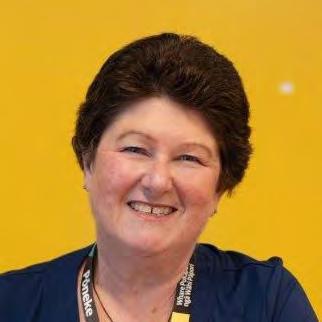
SUPPORTING BUSINESS DEVELOPMENT IN WELLINGTON
The last five years have brought many changes to the business environment, particularly in Wellington. Along with redundancies and closures, there has also been an increase in selfemployment and the number of small business startups. Linda Stopforth talks about her Business Development Customer Specialist role at Wellington City Libraries.
Based on my special library experience in many different workspaces, ‘business’ has expanded to include workers at all levels and businesses of all kinds – large corporates, sole traders or those with a developing side gig. Promoted resources are just as diverse and incorporate personal and professional development topics as well as practical business information.
As part of engaging with local businesses, I began telling their stories through interviews. Initially, they were videos, but many people were not comfortable with appearing on
camera. I moved to reproduce the interviews in a written format and have had greater uptake since. Written interviews are easier to edit, and the interviewee has more control over the result. It is important for both our integrity and their brand management.
In the last year, interviewees included someone in business for just three months and others who had been in business for decades. These interviews share a business journey and record our future city's history.
Increased emphasis has seen New Zealand-published material added to the collection. New Zealand-produced books are important because they are more relevant to our business customers. The Wellington business community is very active in writing and publishing.
Pinpointing a local author or book is not always easy, as many tend to self-publish and are unfamiliar with library acquisition processes. I have often explained to an author that most librarians cannot just go to Amazon with their credit card and buy copies.
When a new book comes to my attention, I approach the author for a blog piece or book extract we can reproduce to help promote the book as a 'Guest Post' for the weekly business blog. Most are flattered to have been noticed and offered wider exposure.
The business blog contains not only guest author pieces, along
with the interviews but also curated resources on soft skill topics. I make these topical to current events where possible. Topics such as sleeping well (published when Daylight saving ended) are of broader interest. Job seeking and networking posts when redundancies across the public sector started to take effect on the local workforce. Whether employer, sole trader or kaimahi, there will be a topic for everyone.
These topics are distilled into Korero Kaipakihi, a fortnightly business newsletter. The newsletter has grown from nothing to over 200 regular subscribers. It highlights blog pieces and new publications, including links to ephemeral material of interest to readers.
Last year, I ran the first Business Workshop. A local entrepreneur facilitated a twohour session on setting up a business. The session was fully subscribed. This year, workshops are planned on Emotional Intelligence and Demystifying AI for Business. We expect they will both be well-attended.
We still answer businessrelated requests for information. However, to better connect with a changed business environment, Wellington City Library's Business Development Customer Specialist role has become more about outreach and promotion, engaging with the local business community and proactively offering information to them.

for Libraries
Transform
your community into global citizens.
Empower learners to explore a new language at the library, at home, or on the go using any Internet-connected device. Available in 120+ languages, including English, learners have the flexibility they need to learn a new language anytime, anywhere.
Features users love in the most complete language-learning system for academic libraries
120+ languages (and growing!)
From Afrikaans to Zulu, the number of languages available to learners is constantly growing.
Alphabet lessons:
You can't learn to read or write if you don't know the alphabet. Get learners started on the right foot with our Alphabet course.
Flexible learning path:
Learners can follow our plan or explore their own. The choice is theirs.
Extensive English collection:
300+ hours of English, from beginner courses taught in 30+ languages to intermediate and advanced conversation courses.
Contact Gale - o cial ANZ Distributors: anz.galeglobaltech@cengage.com or visit www.transparent.com/libraries
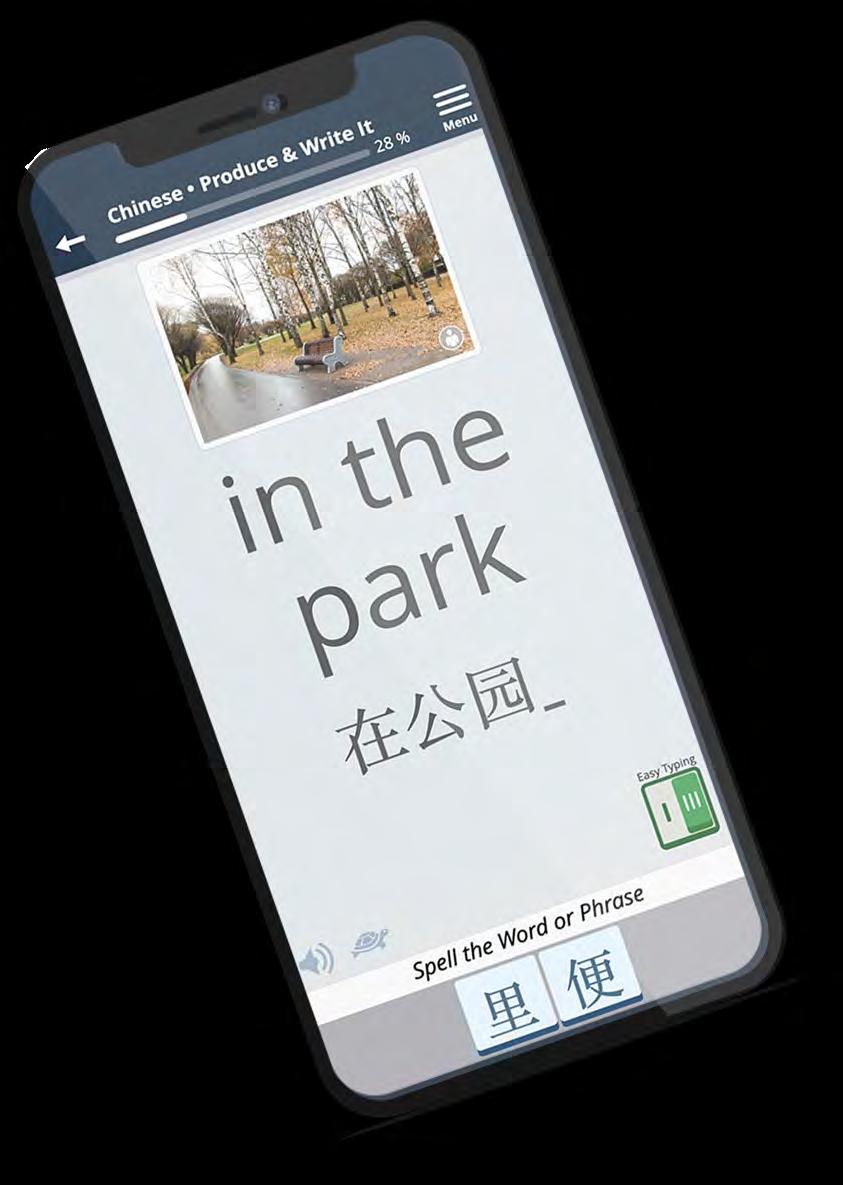
25+ learning activities:
Interactive learning activities encourage learners to practice all four modalities: listening, speaking, reading, and typing.
Focus on a specific skill:
Listening, speaking, reading, and writing are all part of the language puzzle. Learners can pick any skills-based learning activity, select their desired vocabulary, and instantly launch a custom lesson.
Learn on the go:
At the library, at home, and everywhere in between, access to lessons is possible on almost any device, including full-feature mobile apps for iOS and Android™ tablets and phones.

LIBRARY OF THE ISSUE
GNS SCIENCE -TE PŪ AO

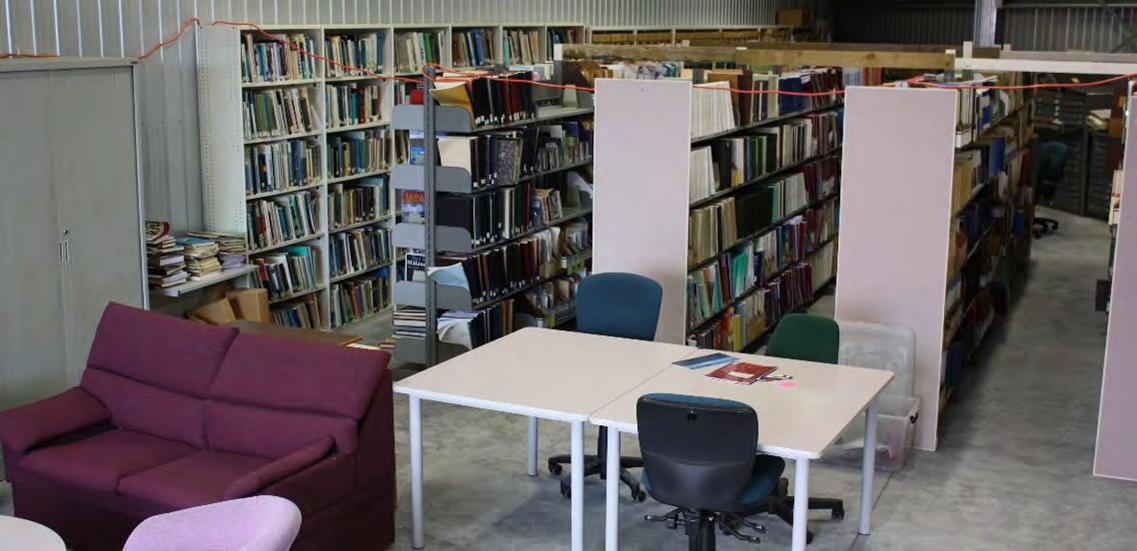
GNS Science Te Pū Ao is a Crown Research Institute (CRI) focused on Earth Sciences. The GNS library supports its scientists and researchers in providing excellent science that delivers tangible benefits to Aotearoa New Zealand. The GNS library covers natural hazards and risks, environment and climate, energy futures and land and marine geoscience.
Our main site and most of our physical collection are located in Avalon, Lower Hutt, in a quirky building which used to house a film studio. We have a second Lower Hutt site in Gracefield,
which has a small physical collection tailored to the main research areas of the science staff based there.
We also have a site in Wairakei, near Taupō, with a physical collection predominantly covering geothermal, volcanology, and groundwater research (currently in off-site storage), and offices in Dunedin and Auckland.
Our team is a bit different from some special libraries in its makeup. There are four library staff: a team leader, two research support librarians in Avalon, and a part-time reference librarian
in Wairakei. We also have three document specialists on our team who are responsible for formatting documents that will be published or sent to clients.
Another of our functions is publications for sale/outreach, with a part-time staff member selling material published by the current organisation and its predecessors. This database also has a lot of free material, including reports, maps, and posters. We are part of a wider information management (IM) team, which includes an information manager, information and records advisor, data management partner, and
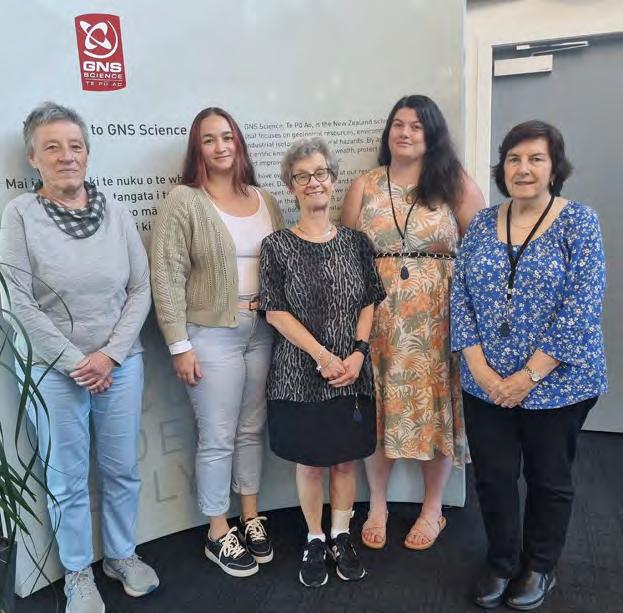
two fixed-term team members working on current IM projects. This team is part of the Digital, Systems and Information department.
Avalon Library Services Team, left to right: Edit Burla (Research Support Librarian), Lara East (Research Support Librarian), Maggie Dyer (Library Services Team Leader), Kate Robb (Document Specialist Lead), Penny Lawrence (Publication Sales)
Wairakei Library Services Team, left to right: Buzby (dog), Anna Crawley (Reference Librarian), Bruce Sanderson (Document Specialist), Linda Kotze (Document Specialist)
GNS has a long history. We follow various predecessor organisations, beginning with
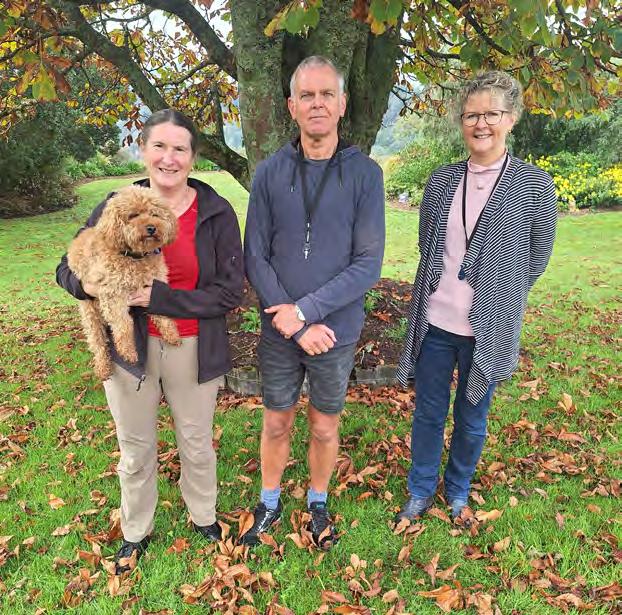
the New Zealand Geological Survey, which was established in 1865. This heritage means that as librarians at GNS, we are the custodians of some books and other items which are over 150 years old. As the organisation is geological, this legacy material does get used from time to time.
Of course, in the modern day, most of our services are digital. We support the science staff in their research and with publication. We manage journal subscriptions, ensuring they can access the journals which are most valuable to their research. When we don’t own or subscribe to a book or journal a scientist wants, we fill requests by interloaning or purchasing the material.
We also offer literature searches and guidance for using both
internal and external databases. Staff who are publishing work can get support with assessing the impact of publishing in particular journals, meeting style requirements, and managing references.
Our library catalogue is on Liberty, and we maintain an internal Bibliographic Database which contains published and unpublished science output. Unfortunately, we do not have a discovery layer tool for searching across all our available content. Materials indexed in the Bibliographic Database include maps, theses, client reports and other reports, and unpublished material such as field notebooks and letters. It includes internal and external material and is continually being updated with indexing of new and legacy material.
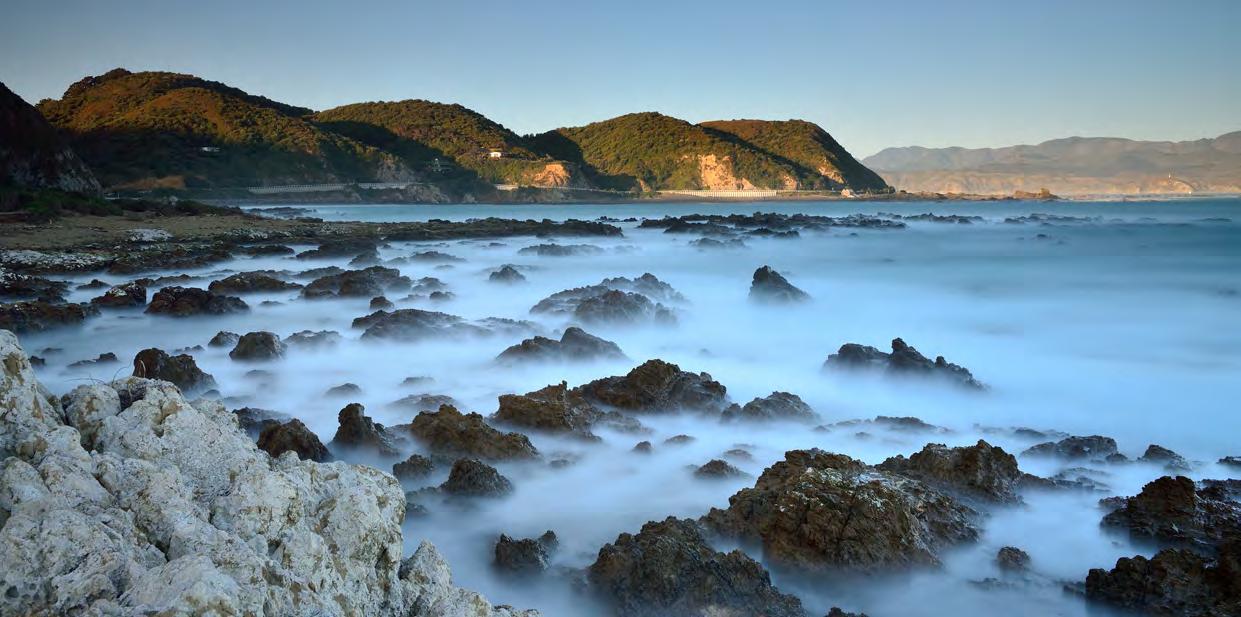
While material is searchable on this database, it is not all digital. There has been a project aiming to digitise the output of GNS and its predecessors, published and unpublished, for several years. Progress is a bit slow, with a mixture of in-house and external digitisation. Still, we continue working on it to ensure that these materials are preserved and accessible for current and future researchers.
Another database we manage is our Visual Media Library (VML). There used to be a dedicated photo librarian who took photographs and managed the VML, but now this task is left to us as library staff. Photography advice is gone with the photo librarian, and fortunately, there are skilled photographers in other parts of GNS, but we are
managing the database. Our images are regularly requested for external use. They have been used in various ways, including in PhD and master’s theses, museum exhibitions, and educational material, among other things.
After more than 30 years as a Crown Research Institute, as per the Government’s announcement earlier this year, GNS Science will soon be part of a new Public Research Organisation (PRO), along with NIWA. The other current institutes will also be reformed into PROs. We don’t know exactly what the shape of our new organisation will be, but we will continue supporting highquality science with our library services.
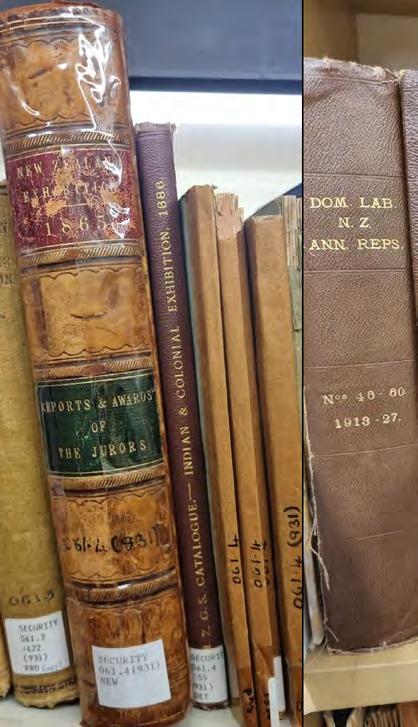

TERTIARY PROFILE
PACIFIC LIBRARIAN UPSKILLS WITH OPEN POLYTECHNIC QUALIFICATION

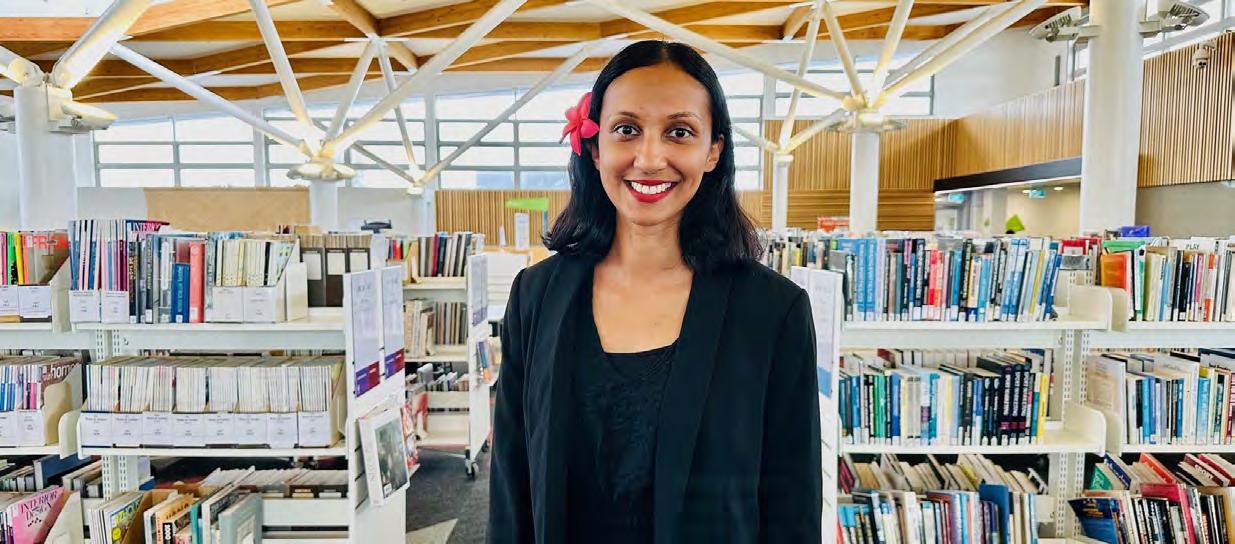
Sana Saleem’s professional goal for 2024 was to enrol in the Graduate Diploma in Library and Information Leadership at Open Polytechnic. Sana, a Pacific Librarian at Unitec Library in Auckland, chose to study with Open Polytechnic because it offers a range of library and information qualifications that LIANZA professionally recognises.
Sana is from Fiji, the village of Saunaka, Nadi, from her father’s side and Sabeto from her maternal side. As Pacific librarian, she looks after the Pacific collection and library resources, helps staff (kaimahi) and students (ākonga) aligned
“Working in an academic library is about the embedded partnerships with students, staff, communities and researchers to support the institution's teaching, learning, and research goals by providing equitable access to scholarly and cultural collections,” Sana says.
with the School of Creative Industries, and provides interlibrary loan services at Unitec.
“This library leadership qualification has strengthened
my responsibility as a kaitiaki of indigenous knowledge and curator of the Pacific collection to protect and manage library resources for present and future generations.”
Sana initially worked part-time at the University of Auckland Library while she was a student, and her passion for a library career grew into a decision to become an academic librarian. Then Sana landed her current role at the Unitec Library and has worked at all three branches. This advanced her skills and knowledge as a specialist academic librarian. She started studying at the Open Polytechnic in June 2024 and finished in February 2025.
Sana serves as the Pasifika representative on Open Polytechnic’s Library and Information Studies Stakeholder Advisory Group. In 2024, she received the Edith Jessie Carnell Grant through LIANZA. The grant is awarded to assist an individual with travel, study or research.
Sana is also a professionally registered librarian, RLIANZA, who acknowledges the support received from LIANZA for the opportunity to study in this programme. She received the LIANZA Award of Professional Excellence in 2024. The award is presented in recognition and celebration of her longstanding commitment to Pacific communities and students at Unitec.
Her favourite course as part of her Open Polytechnic studies was Library and Information Service Professional Practice, which allowed her to undertake
practicum placements in her current workplace. “I’m very grateful to do my professional practice at Unitec Library under the leadership and support of my library manager, who has been instrumental in my career progression,” Sana says.
“Our mentoring conversations and shadowing experience have helped me better understand my professional capacity as a qualified librarian looking to progress into a library management role in the future.”
She also found practical topics in her studies, including cultural competencies in the information environment, leadership and advocacy, empowering people and communities, and critical perspectives for library and information professionals.
“These topics enhanced my skillset and provided training to prepare me for a future leadership role,” Sana says. “I
enjoyed developing stakeholder library initiatives to engage with Māori and Pasifika patrons. I learned to apply solutions to contemporary issues.”
Sana enjoyed the flexibility of studying online through Open Polytechnic. “It allowed me to continue working full-time while upskilling towards my career progression in librarianship,” Sana says.
She is also grateful for the support from the Library and Information Studies course leaders throughout her journey as a distance learner. Sana encourages Māori and Pasifika students to apply for the Graduate Diploma in Library and Information Leadership at Open Polytechnic.
For further details go to the Open Polytechnic website: https://www.openpolytechnic. ac.nz/
Develop your skills with our qualifications
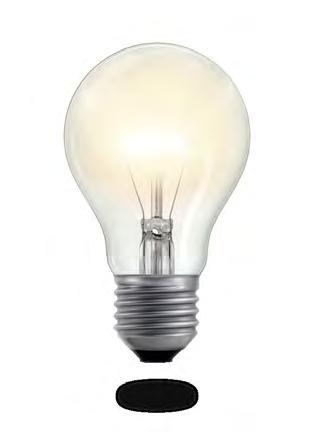

HISTORY CORNER
NEW ZEALAND CHILDREN'S AND YOUNG ADULTS BOOK AWARDS


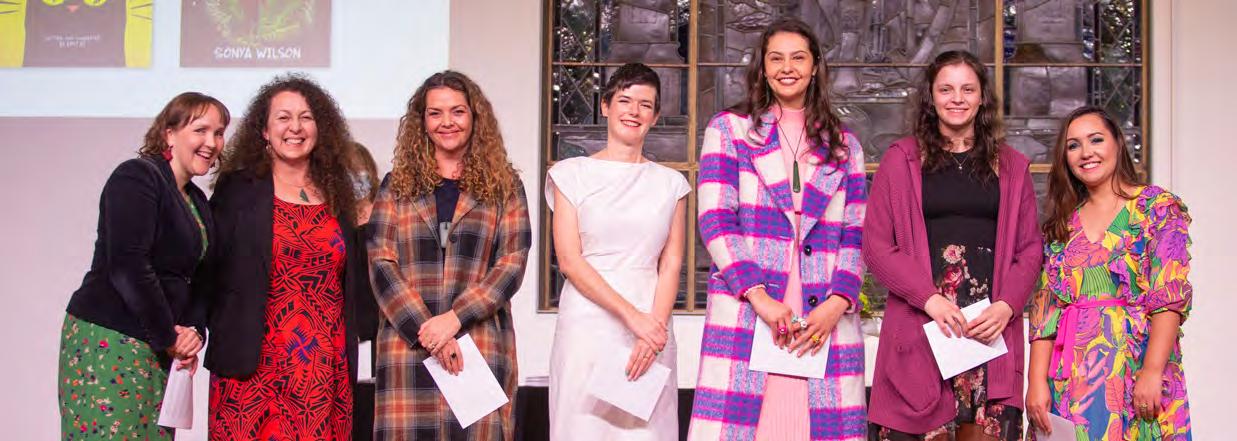
In 2024, submissions for the awards increased by nearly 14% over the previous year, with 175 entries from 141 books, featuring 29 first-time writers or illustrators.
The awards had several different names and sponsors over the years, including AIM Toothpaste and NZ Post. Known in 1982 as the New Zealand Government Publishing Award, the first top prize for Children’s Book of the Year was awarded to Joy Cowley’s The Silent One, illustrated by Sherryl Jordan. The book follows the story of Jonasi, a deaf boy who befriends a giant turtle. Joy Cowley would go on to win the top prize three more times (for Bow Down Shadrach, Hunter, and Snake and Lizard), while Sherryl Jordan would win again in 1991 for her book Rocco.
The 1982 awards also represented the first time a prize specifically for celebrating the best New Zealand picture books was awarded. The first book to win the Picture Book category was Patricia Grace and Robyn Kahukiwa’s The Kuia and the Spider.
As the awards - and the New Zealand children’s book industry - grew over time, more new categories were added. NonFiction, Best First Book, and separate awards for Junior and Senior Fiction were added in the early 1990s, when the awards operated as the AIM Children’s Book Awards; and in 1997, as the New Zealand Post Children’s Book Awards, a Children’s Choice Award debuted.
LIANZA’s own annual book awards, The LIANZA Children’s Book Awards, merged with The New Zealand Book Awards for Children and Young Adults in 2016. This brought the oldest children’s literature award in New Zealand, LIANZA’s Esther Glen Award, established in 1945, under the banner of the New Zealand Book Awards for Children and Young Adults, along with the Elsie Locke Award for children’s non-fiction and the Te Kura Pounamu Award for Te Reo Māori.
This is a reprint of a History Corner written by Nicole Thorburn in 2021. Nicole Thorburn RLIANZA is a librarian and heritage geek at Thames-Coromandel District Libraries. She studied history at the University of Waikato and worked in both museums and archives before moving into libraries.

FREEDOM OF INFORMATION
NEW TOOL IN THE FREEDOM-TO-READ TOOLKIT–
THE LIBRARY CHALLENGES REGISTER

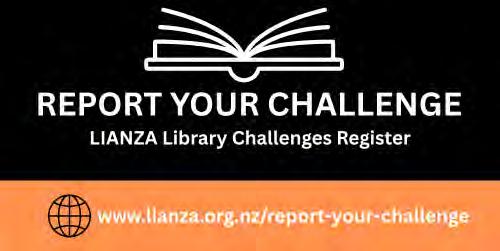
The LIANZA Freedom-to-read Toolkit was created because we could see that Aotearoa was starting to experience an increase in challenges seen in Australia, Canada, the UK, and particularly the USA. The toolkit was to help prepare for the same here, and as predicted, the same types of groups as those leading the charge in other countries have attempted to make the same headway here, as we see in Trump’s America.
The recent debate around The Treaty Principles Bill, changes to the school curriculum, the removal of Māori government department names, the New Zealand First bill which Winston Peters says would “put an end to the woke left-wing social
engineering and diversity targets in the public sector” sound very like the increasingly extreme attacks on free speech and on diversity, equity and inclusion measures happening in the USA. Not only have local banning and defunding of libraries grown in number there, and threats to librarians upholding freedom of information become harsher and more frightening, but the USA has a government that is unashamedly removing information from libraries, archives, museums, and government websites.
Library associations in the USA, Canada, Australia and the UK take a strong role in advocacy for libraries in their country and for the freedom of information. The USA, Canada and Australia
have national registers in place to collect numbers and the types of challenges that libraries are experiencing.
The Canadian Library Association data collection has revealed a significant increase in challenges around LGBTIQ+ content and events. They are also seeing a trend towards challenges to books based on race relations. The American Library Association data from 2024 revealed that most book censorship attempts are now originating from organised movements. Pressure groups and government entities, including elected officials, board members, and administrators, initiated 72% of demands to censor books in school and public libraries.
Comprehensive data about challenges gives libraries a deeper understanding of what is being challenged and where it is coming from, which can help libraries create more appropriate policies and be more prepared. National library associations are better equipped to create resources and advise the profession with a richer knowledge of challenges
INTRODUCING THE LIANZA NATIONAL REGISTER FOR LIBRARIES TO REPORT CHALLENGES IN AOTEAROA
The LIANZA Library Challenges Register is based on research into international examples, looking at the tools they used, the methodologies and data types collected. While most challenges are made to public and school libraries, the register is open for all libraries to report, including academic and special libraries, and the National Library of New Zealand.
The register covers challenges to collections, displays, events, and any other action where someone is trying to remove, cancel, or disrupt a library resource or service. We ask how the challenge was received, such as in person, formal complaint process, protest etc, what the topic of the challenge was and what action you took in response.
We encourage every library to add its challenge to the register so that we have the data we need to respond to challenges.
Libraries and library associations can resist censorship and protect their collections, communities and staff by:
• having policies and processes in place
• learning from incidents as they occur
• building allie s and supporters in and outside our organisations
• ad vocacy and raising awareness
• gathering evidence of trends and escalations.
Reporting your data to the register is an important way to help you and the whole library and information community ensure we can deliver free access to information and stories to our users.
This is a simple-to-use webform on the LIANZA website. The information is automatically collected into a database monitored by LIANZA’s Freedom of Information committee. LIANZA will respond where support is needed and will also collate the data to produce trend reports and analysis to help us all respond more effectively, and advocate for the freedom to read.
• Have a look at the CHALLENGE REGISTER page on the website HERE.
• Talk to your library about setting up a new routine to report challenges.
• If you haven’t already collected this data for your own library, this could provide

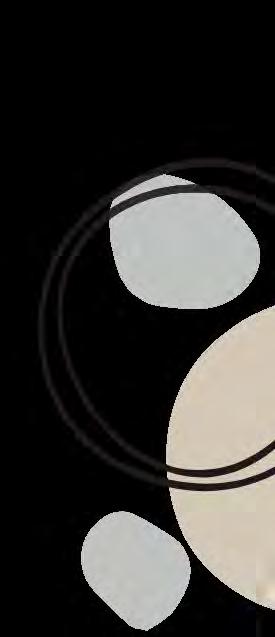

CLIMATE ACTION
ALIA INFORMATION ONLINE: TRANSFORMATION AND DISRUPTION
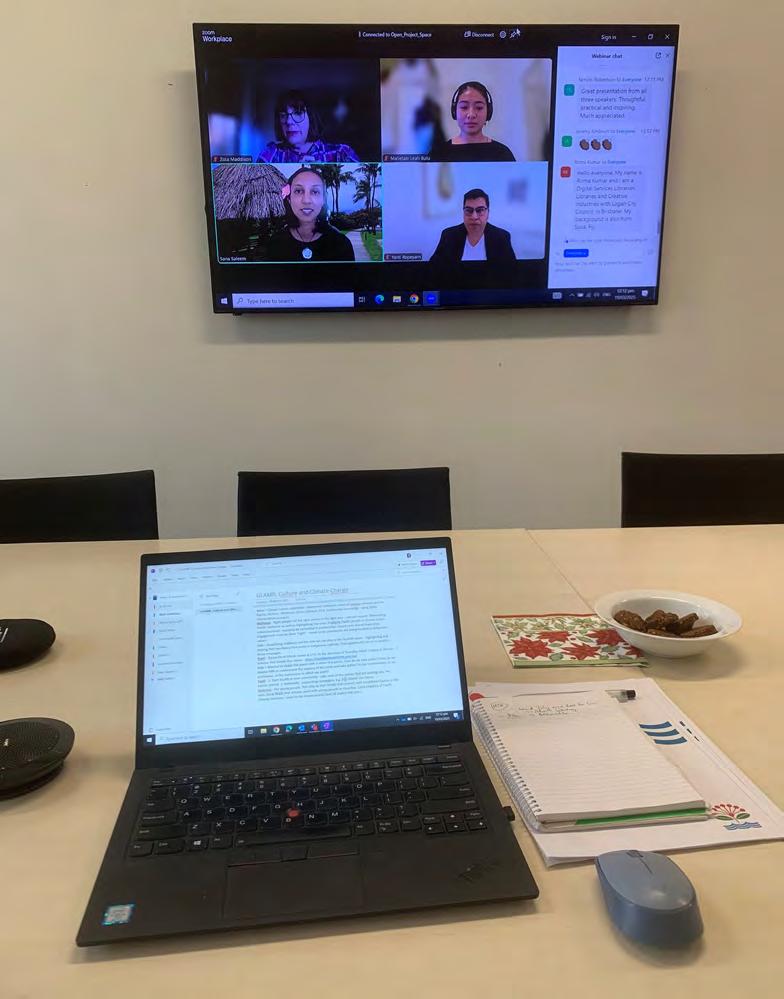
Day Two - 19 March 2025: Greening GLAMR from Sana Saleem, Pacific Librarian, Unitec
I attended my first ALIA conference, and it was a blessed journey for me to be part of the keynote panel ‘GLAMR, Culture and Climate Change’ on Day 2 of the theme Greening GLAMR.
The conference gave us the space to discuss a range of topics such as indigenous knowledge, climate change, and AI, which was facilitated by leading experts in the field. My colleagues Malietasi, Yanti and I, as the three panellists, opened our talanoa to share and reflect on our experiences with climate disaster and the impact to the
community and culture. We had good attendance in the opening keynote session with over 400 attendees joining online.
It was a heartwarming experience for the panellists to come together for the love of communities and libraries to advocate for indigenous voices, drawing upon the indigenous worldviews in order to adapt and cope with climate change. I reflected on my childhood memory of having witnessed and experienced firsthand how natural disasters such as tropical cyclones, floods, and rising sea levels have had a huge impact on my homeland and on my people.
I highlighted the purpose of the LIANZA Standing Committee for Climate Action as a collective membership that represents a variety of backgrounds in public, tertiary and special libraries. We are also geographically located in the North and South Islands in Aotearoa. I acknowledged the ongoing mahi of our rōpū and some of the actions that we have taken so far. I spoke about the community-level change in libraries facing challenges related to limited awareness and engagement with the SDGSSustainable Development Goals adopted by the United Nations to address global challenges such as climate change.
Each panellist was asked to make a recommendation for an “easy, low-hanging fruit" action. I had two strong recommendations to encourage indigenous partnership with

emerging green library practices. I reflected on Day 1’s indigenous knowledge theme, which made me think about my own role as a Pacific librarian.
Our responses connected naturally to agree that indigenous-led solutions and leadership in greening our libraries should be visible through sustainable and culturally informed practices. I defined the concept of solesolevaki in Fijian, which means working together as a collective community effort to revitalise the relationships and cultural connections to understand resilience and adaptation to climate change.
I’m grateful for the opportunity to talanoa and highlight our mahi as librarians in partnership with LIANZA and ALIA. My message to everyone is to continue to advocate, champion and create your own journey for climate justice. Indigenous peoples have invaluable and critical contributions to make to climate change mitigation and adaptation.
GREENING GLAMR: FIVE LESSONS FOR CLIMATE ACTION
Alexis McCullough also attended the Greening GLAMR Day of ALIA Information Online and enjoyed hearing about the wide range of exciting sustainability initiatives and projects our Australian colleagues are driving. If you’re thinking about getting started with a climate action initiative, read on for some great guidance from the day’s presenters.
Think global, act local: Start with your own community
This came through strongly in the opening keynote panel
GLAMR, Culture and Climate Change, featuring three Indigenous Pacific women with a strong commitment to climate action. Sana Saleem, member of the LIANZA Climate Action and Pacific Information Management Network, spoke about the importance of building relationships at the grassroots level, including local cultural and environmental groups, to work together collectively for climate action.
Another panellist Yanti Ropeyarn of the Aboriginal and Torres Strait Islander Data Archives, echoed this sentiment, encouraging us to be active within our communities and to engage with the stories and projects happening at the local level. Yanti spoke about Our Islands Our Home, an important campaign led by her community of Torres Strait Islanders to protect their island homes from climate disaster, which has gained national and international support.
Collaborate with partners with different expertise than your own
Katie Norton and Christina Davidson from Whitehorse Manningham Libraries presented an evidence-informed challenge-based programme on their Healthy Me, Healthy Planet initiative, encouraging library users to “improve personal health and wellbeing outcomes while contributing to a resilient and sustainable community”.
For this project, library staff partnered with Deakin University’s Health Nature Sustainability Research Group, whose expertise is related to the inextricable link between health and the natural environment. In their own words, the presenters acknowledged: “We don't think we're experts in climate change
and health promotion, so we work with people who are.”
Passionate and engaging staff = passionate and engaged community
The enthusiasm, commitment and love for what they do absolutely shone through in the presentation by Robert Hart and David Riley, who spoke about “greening” the STEM programmes at City of Port Adelaide Enfield Libraries. It was no surprise to hear that their suite of climate-related STEM programmes, including Gen Green for teenagers and Lil Greenies after-school programme, has been overrun with interest from their community.
Presenting live from their incredible makerspace, Robert and David gave the most joyful and entertaining talk of the day, taking us through their mahi and its connection to wider organisational strategies around innovation and sustainability so that you not only learned, but you laughed. As ALIA’s Trish Hepworth said in her LinkedIn post reflecting on this presentation, Robert and David “need to get themselves a vlog quickly.”
Demonstrating impact is essential
Will Chittick and Joanna Brown from Sydney’s Georges River Libraries had fantastic data and evidence to show the positive community and climate benefits of their Library of Things, which includes electronic devices, children’s toys and sports equipment. In quantitative terms, they calculate figures to illustrate the annual cost savings per customer and for the entire community, as well as the total number of items saved from the landfill through this initiative
aligned with the principles of the circular economy.
As their conference abstract explains, the collection development policies of Georges River Libraries’ Library of Things and their additional digital tools and musical instrument collections, have sustainability at their core, sourcing from local suppliers and in-house item repair. Capturing data and communicating the environmental, economic and social impact of these collections has been essential for its longterm use and community and political support.
Make
climate action hopeful and relevant for your community
Jayne Cleave from Curtin University discussed the development of a library exhibition titled A Path to Sustainability, which aimed
to support the university community to “engage with critical sustainability challenges and explore actionable solutions”.
The exhibition coincided with the 10-year anniversary of the United Nations Sustainable Development Goals (SDGs) and was co-designed with students to harness their perspectives on sustainability and craft relevant content for the student community. Over 90% of Curtin students are undergraduates, and as the SDGs are part of the Australian school curriculum, they’re familiar with the framework and its goals. The students expressed that most public information around sustainability was irrelevant to their stage of life (e.g. solar panels, electric vehicles). However, they were hungry for realistic, accurate information and a sense of hope during a time when they are busy shaping the foundations of their careers.
Responding to this crucial feedback, the exhibition focused on the link between sustainability and career pathways, education and everyday decision-making. The 80,000 Hours project was one of the initiatives featured in the exhibition, an initiative supporting students to plan their future careers around making a positive impact for people and the planet.
eTextbook Collections
Now available in New Zealand

Did you know you can subscribe to full or individual collections from Cambridge University Press?
OFFER INCLUSIONS
Collections available

P Access to over 1,200 textbooks, including all locally authored CUP titles
Full Textbook Collection
All titles in all 18 subject collections

P Automatic access to new editions as they are published, with outgoing editions remaining available for at least 12 months to support transition
eTextbooks - STM Collections
All 7 STM collections

P Online and offline reading via the Spiral app
eTextbooks - HSS Collection
All 11 HSS collections

P Unlimited simultaneous user access via IP range

P Account registration for offline reading, saved annotations, printing/ copying, and up to 20 books saved to your bookshelf

For further information and a quote, please contact: Kathy Quilter +61 (0) 458 348 400 kathleen.quilter@cambridge.org

LIANZA MEMBERS NEW
Welcome to all our new LIANZA members!
Meena Al-Emleh
Jen Anderson
Jenny Barnett
Dominique Behn
Jennifer Black
Abigail Branstein
Ashleigh Catlin
Molly Crighton
Thomas Croskery
Andy Fenton
Caroline Foster-Atkins
Nicola Grant
Shuo Han
Karri Hartley
Mihi Te Rina Henare
Mere Honeycombe
Kylie Horsfall
Srishaa Iyer
Craig Johnston
Shivani Kalra
Sinéad Keegan
Melissa Knight
Lena Kovac
Marion Kroukam
Grisham Langston
Clara Lee
Auden Lee
Renee Leth
Jessica Lilly
Leena Mani
Laura Marshall
Rani Marsh-Fenton
Marija Martinovich
Relda Matthews
Billy McDonald
Kate Middleton
Jessica Moran
Lilly Morrow Howden
Sokunthea Nhien
Malcom O'Brien
Maeve O'Brien
Helen O'Carroll
Clare OLeary
Jade Pardy
Anna Park
Pranita Parsad
Elida Pereira
Aimelia Pryce
Sophia Rainham
Deva Reeves
Elisabeth Sim
Angelique Simonsen
Lisa Sparling
Paul Swift
Katie Thompson
Anna Varghese
Atonia Vavao
Shalley Zadehfattah

LIANZA PROFESSIONAL REGISTRATION
Congratulations to all LIANZA members who have recently gained or revalidated their LIANZA Professional Registration
AORAKI
Georgina Gray
Yanan Zhao
HIKUWAI
Claudia Adams
Rachel Callander
Amanda Cooper
Zoe Cornelius
Anne Dickson
Emily Flaws
Caroline Foster-Atkins
Mel Knight
Marion Kroukam
Kate Middleton
Jade Pardy
Elida Pereira
Shirley Reyno
Spomenka Sevic
Aimee Speight
Anna Varghese
TE WHAKAKITENGA AA KAIMAI
Lois Haddon
Jacinata Osman
Fiona Rongo
The Library and Information Association of New Zealand A thriving library and information sector
http://lianza.org.nz
